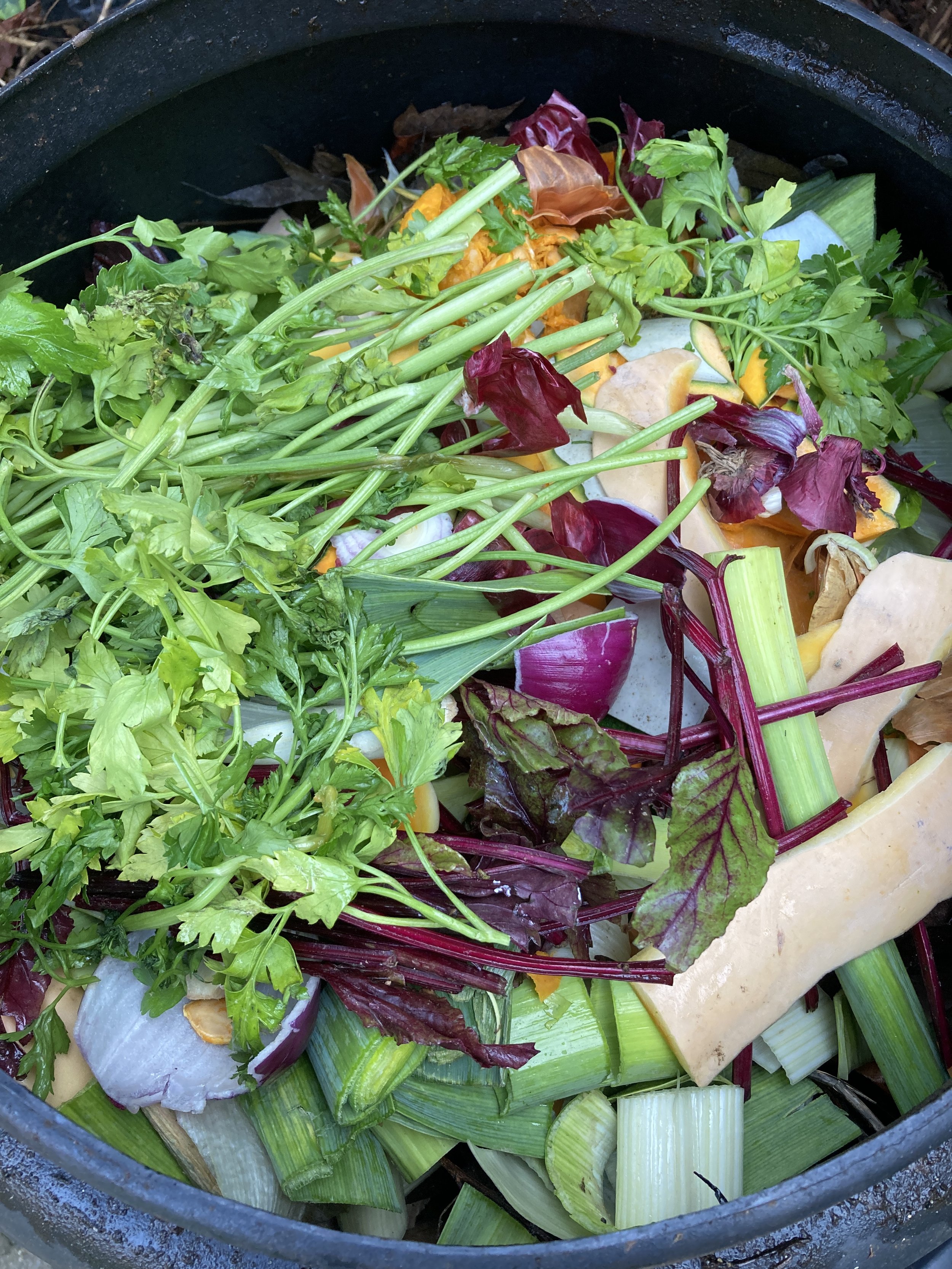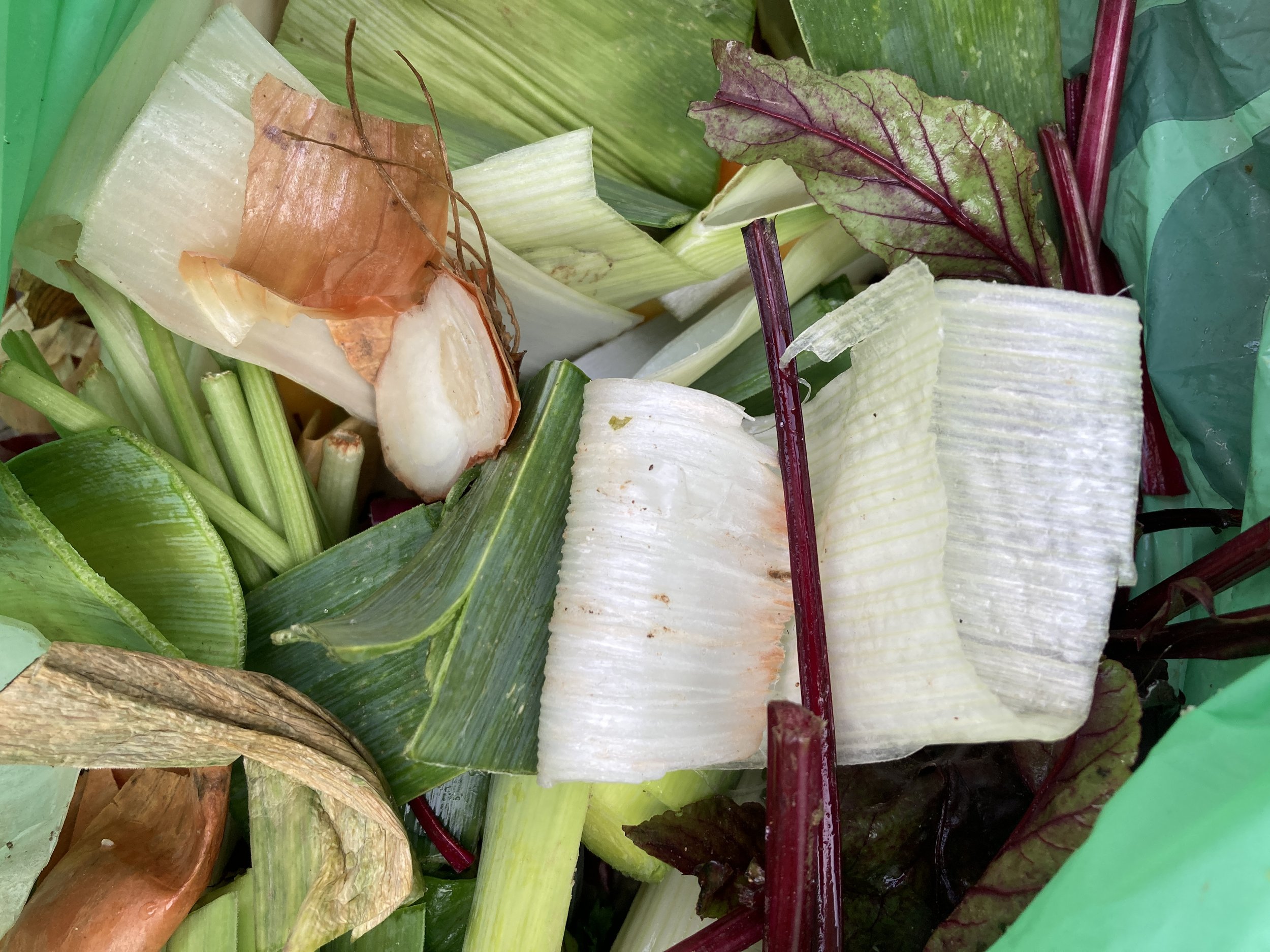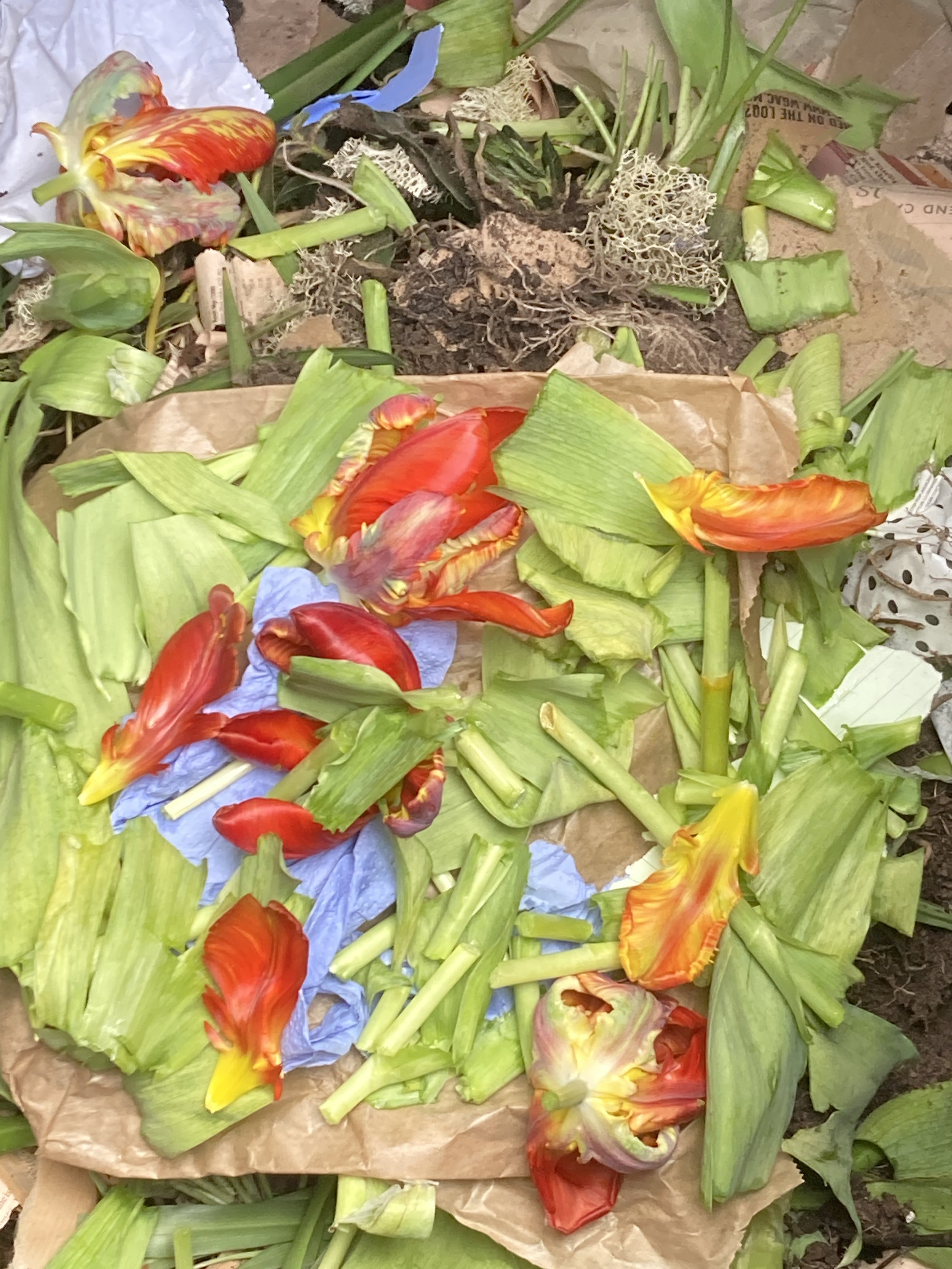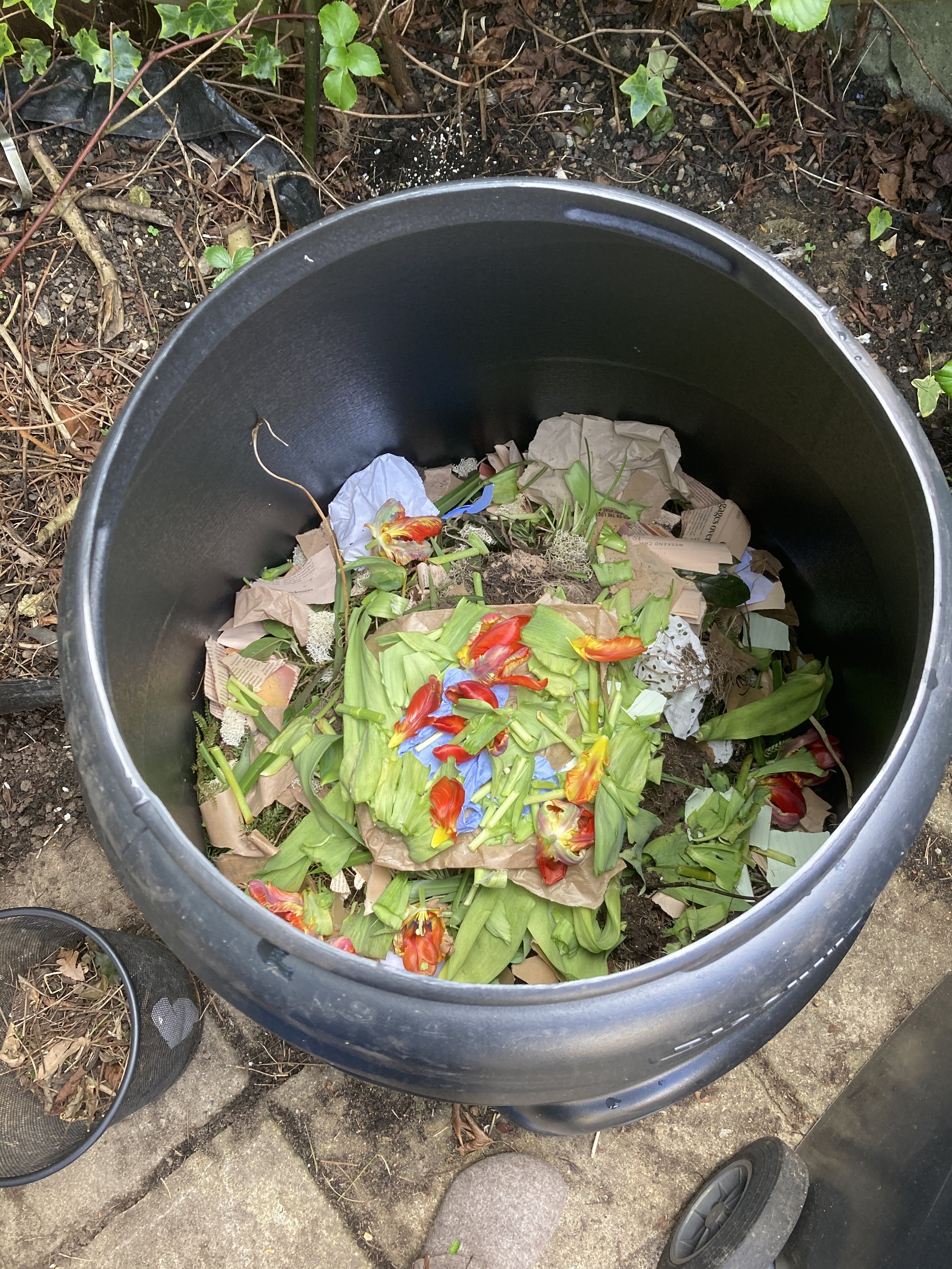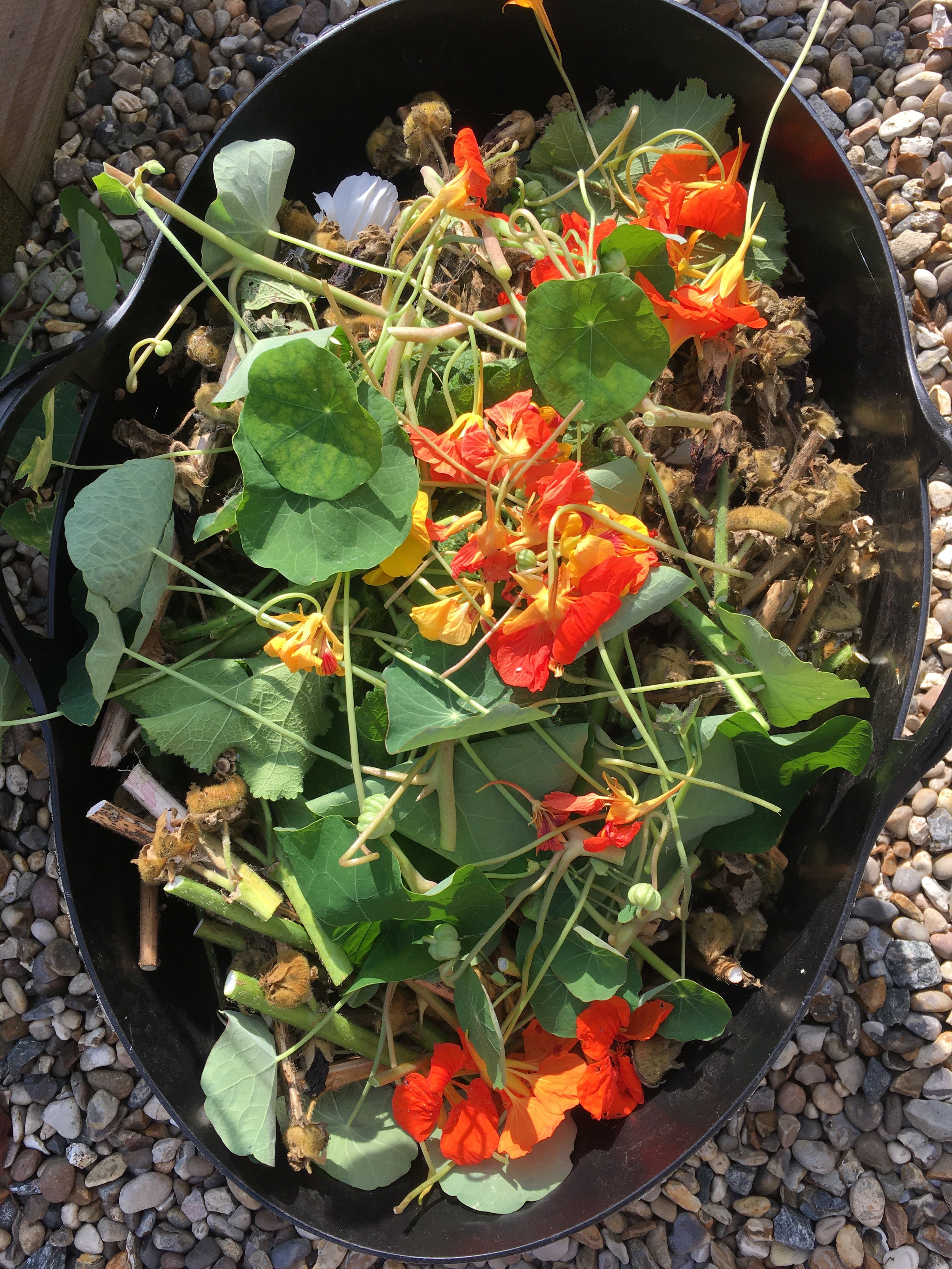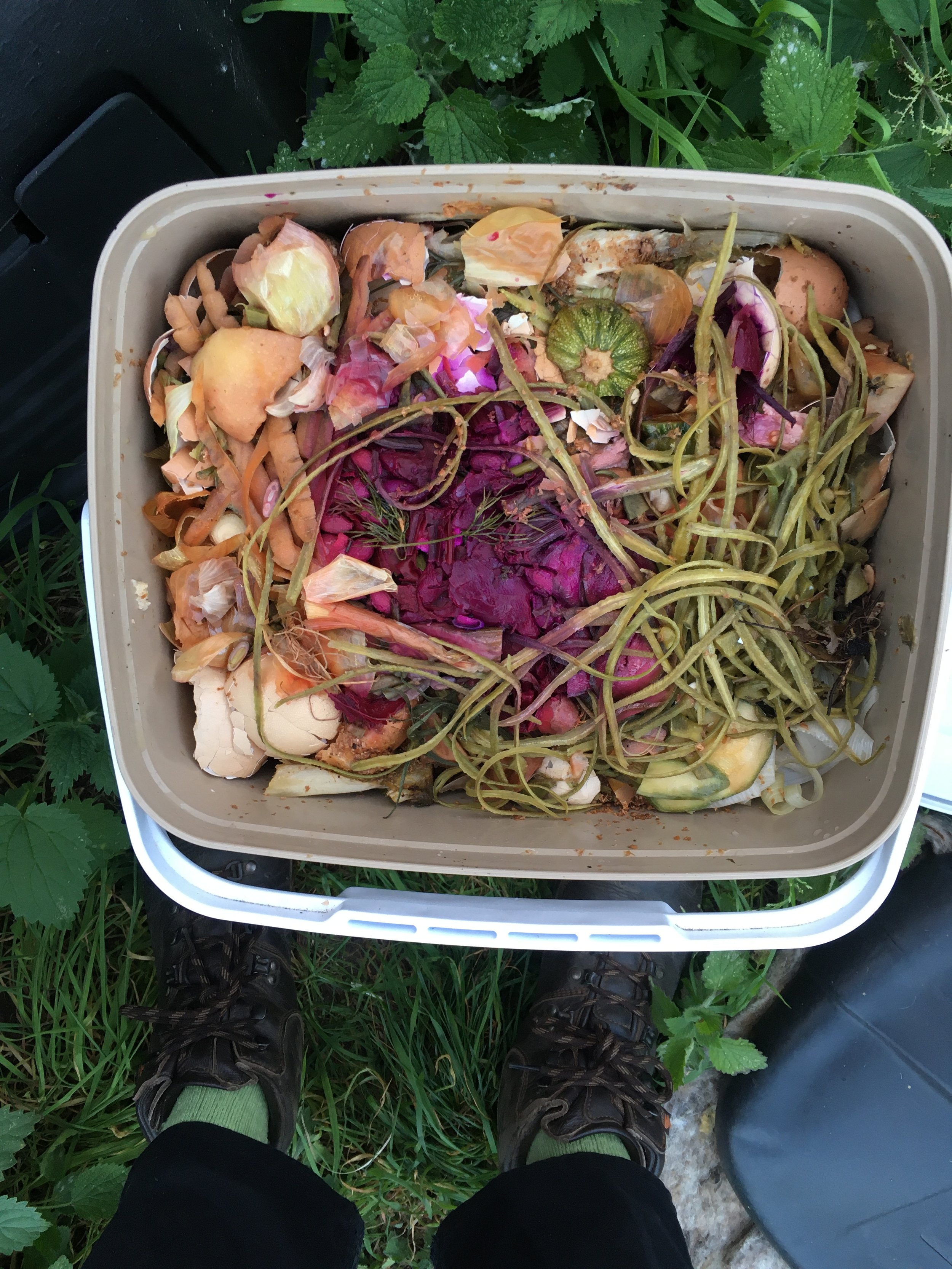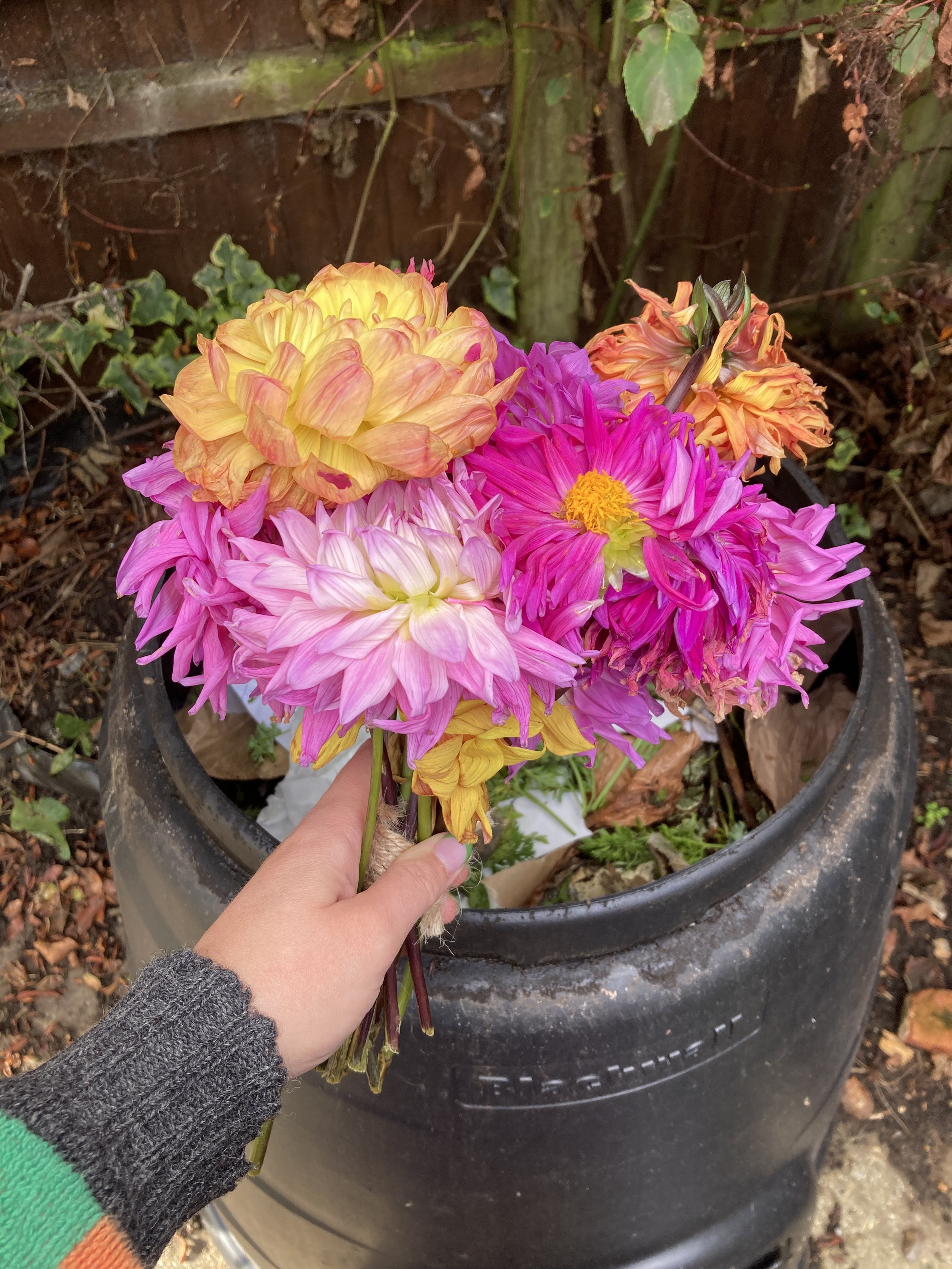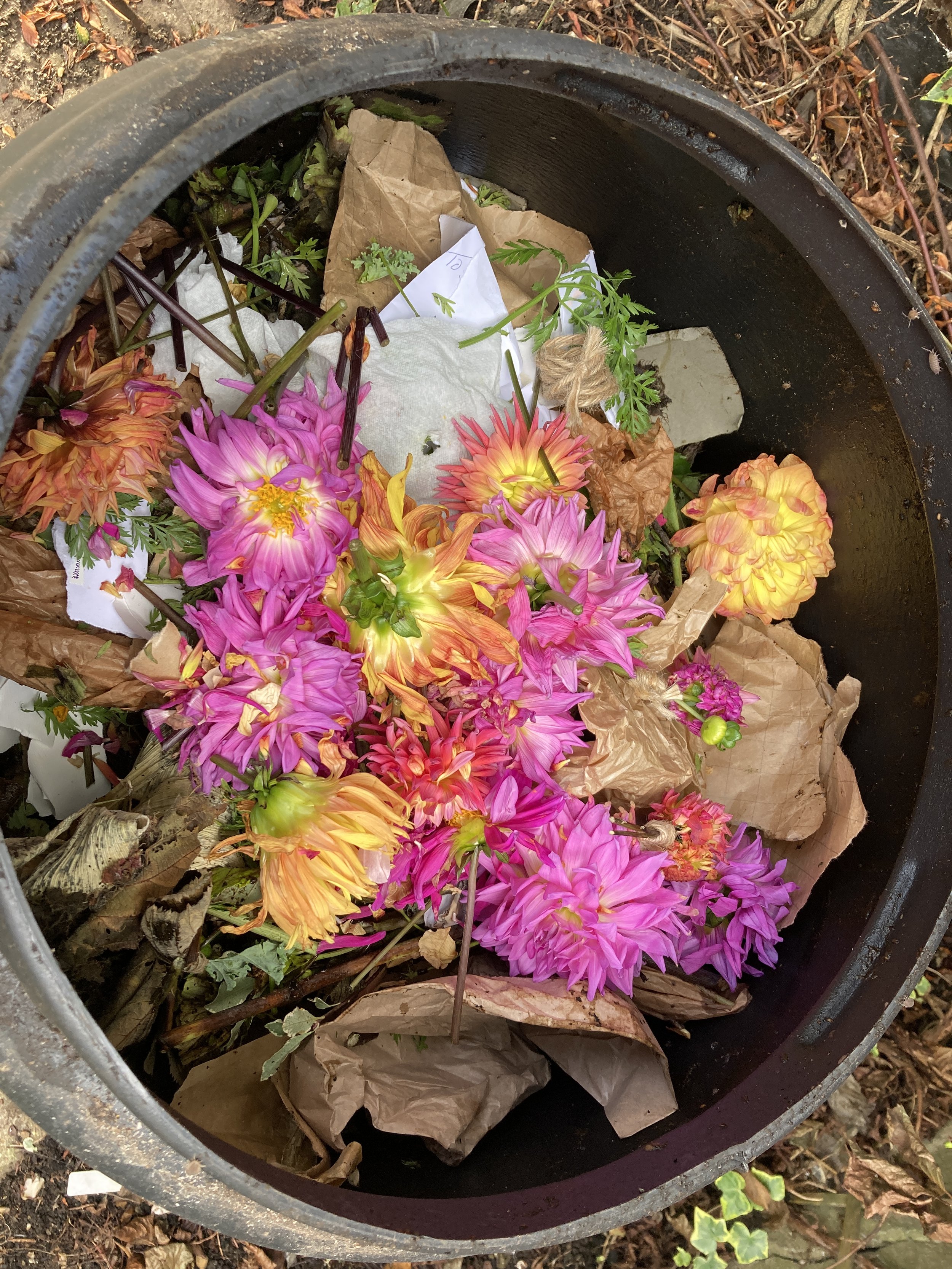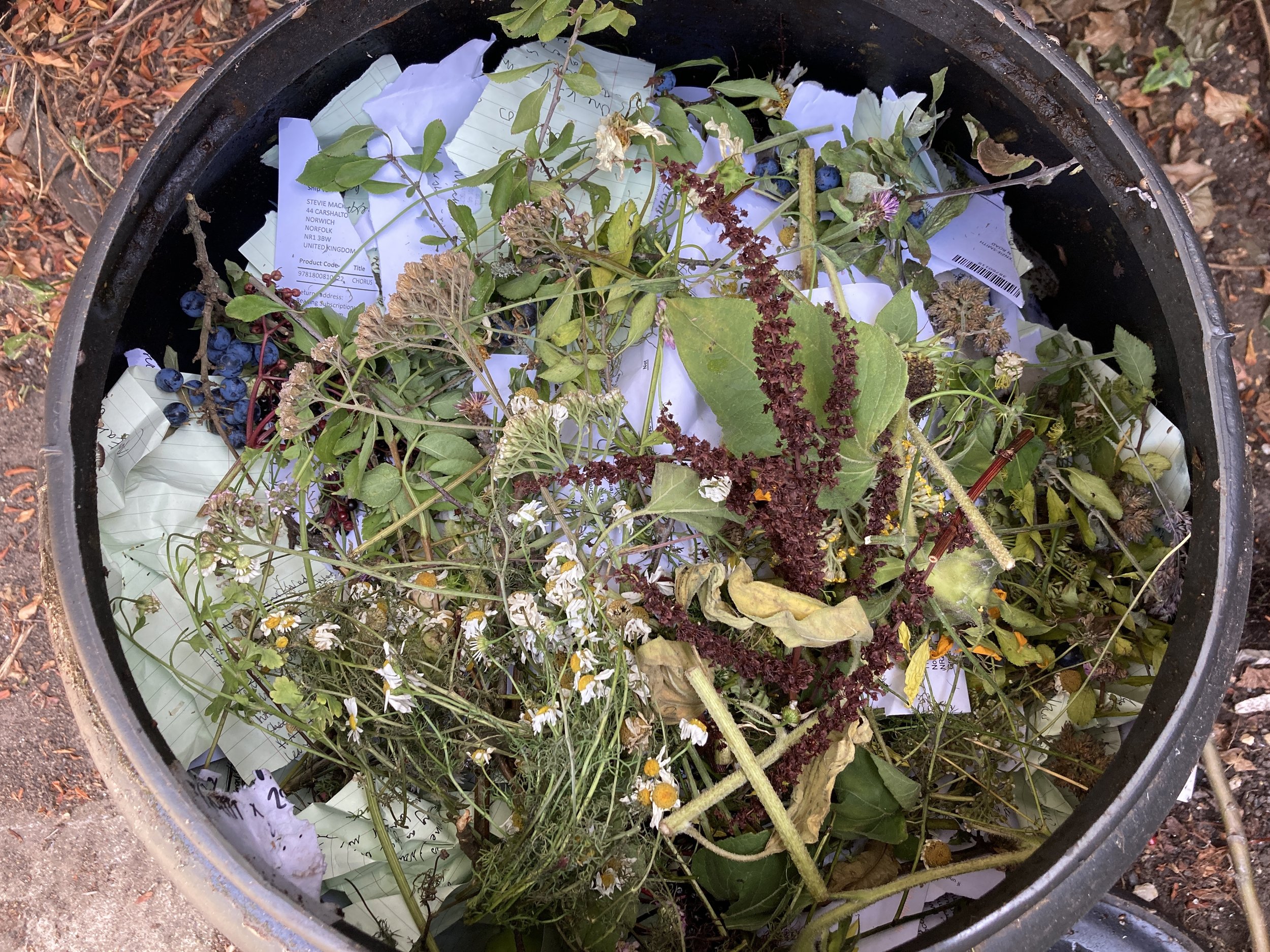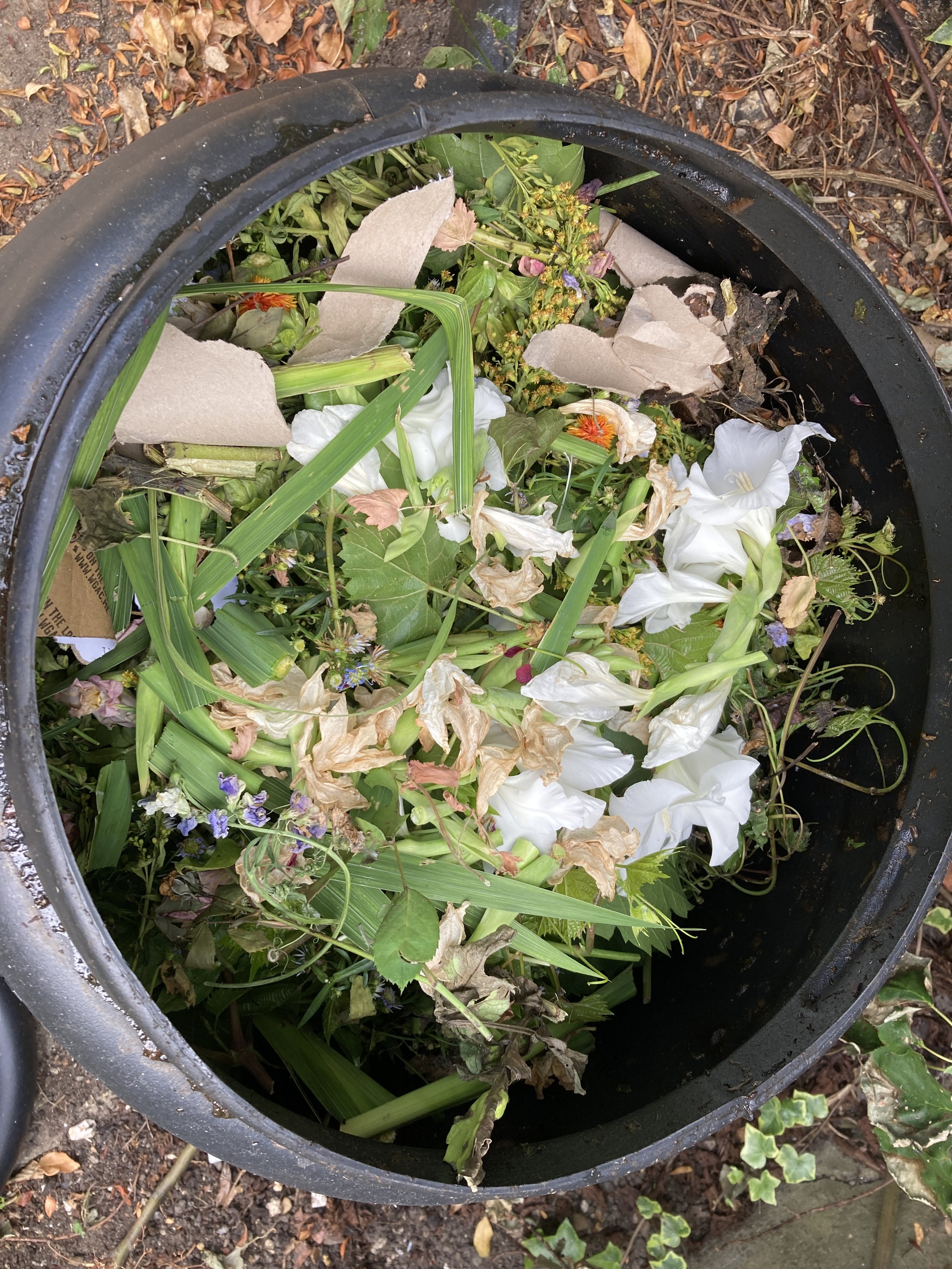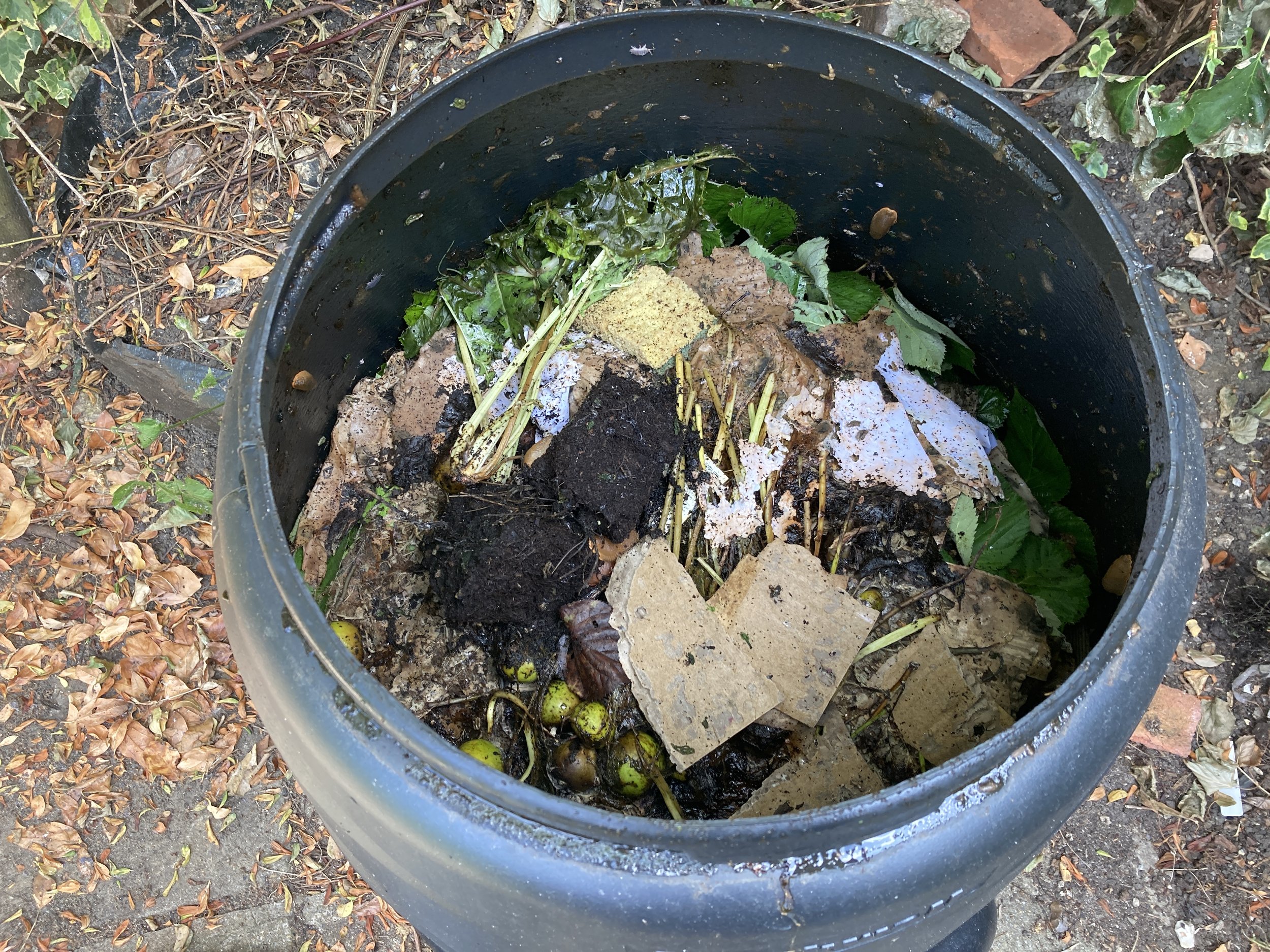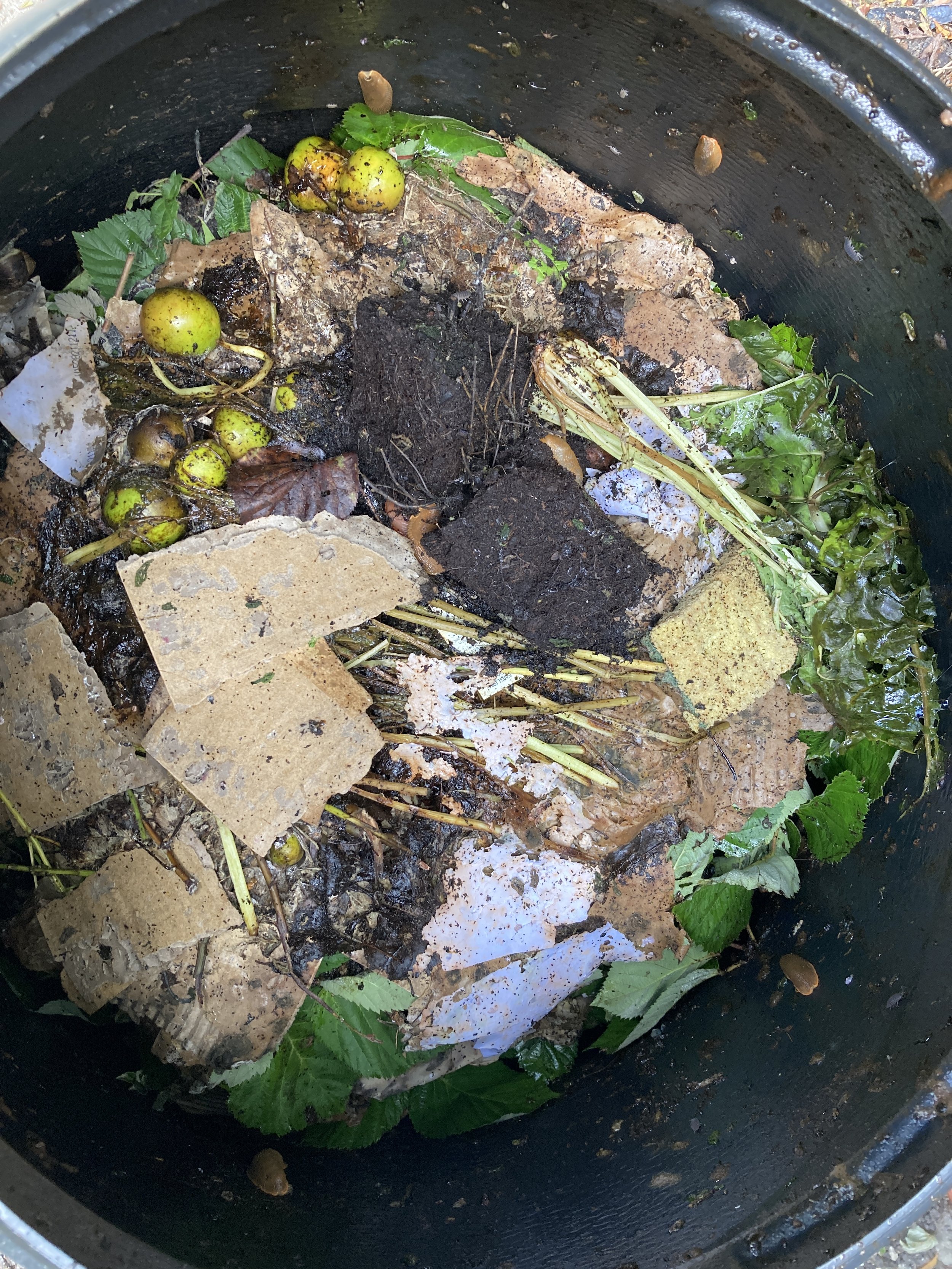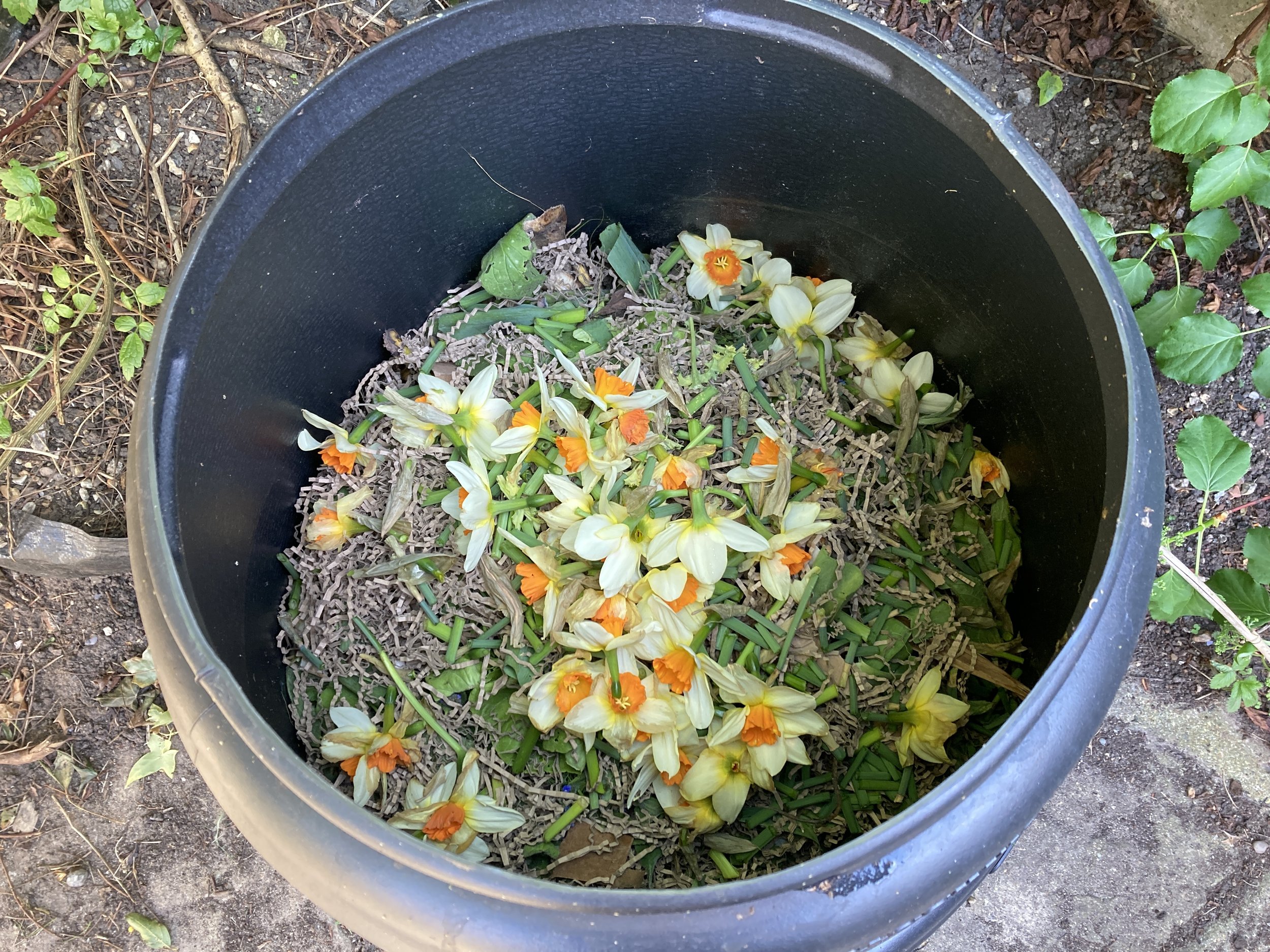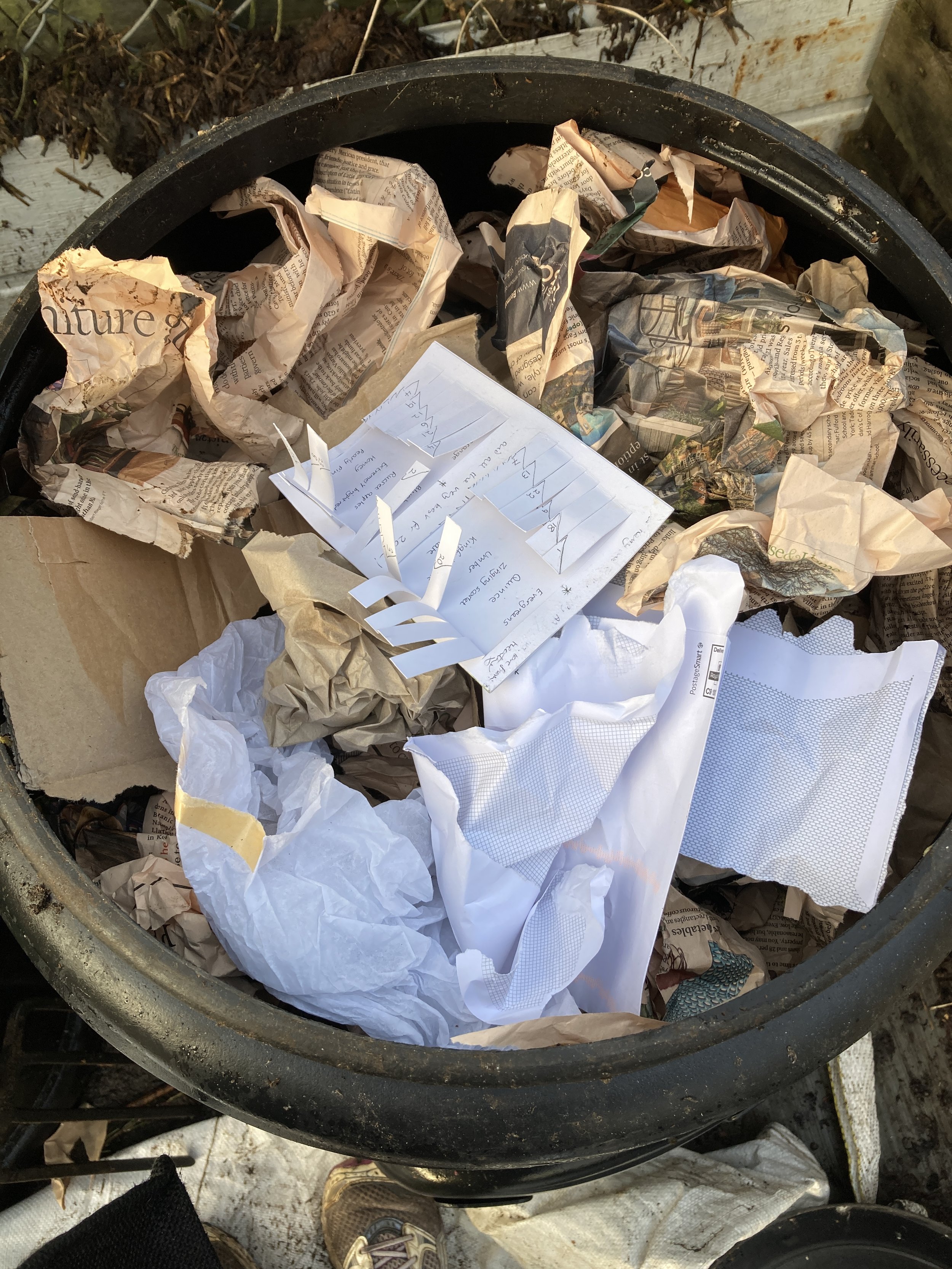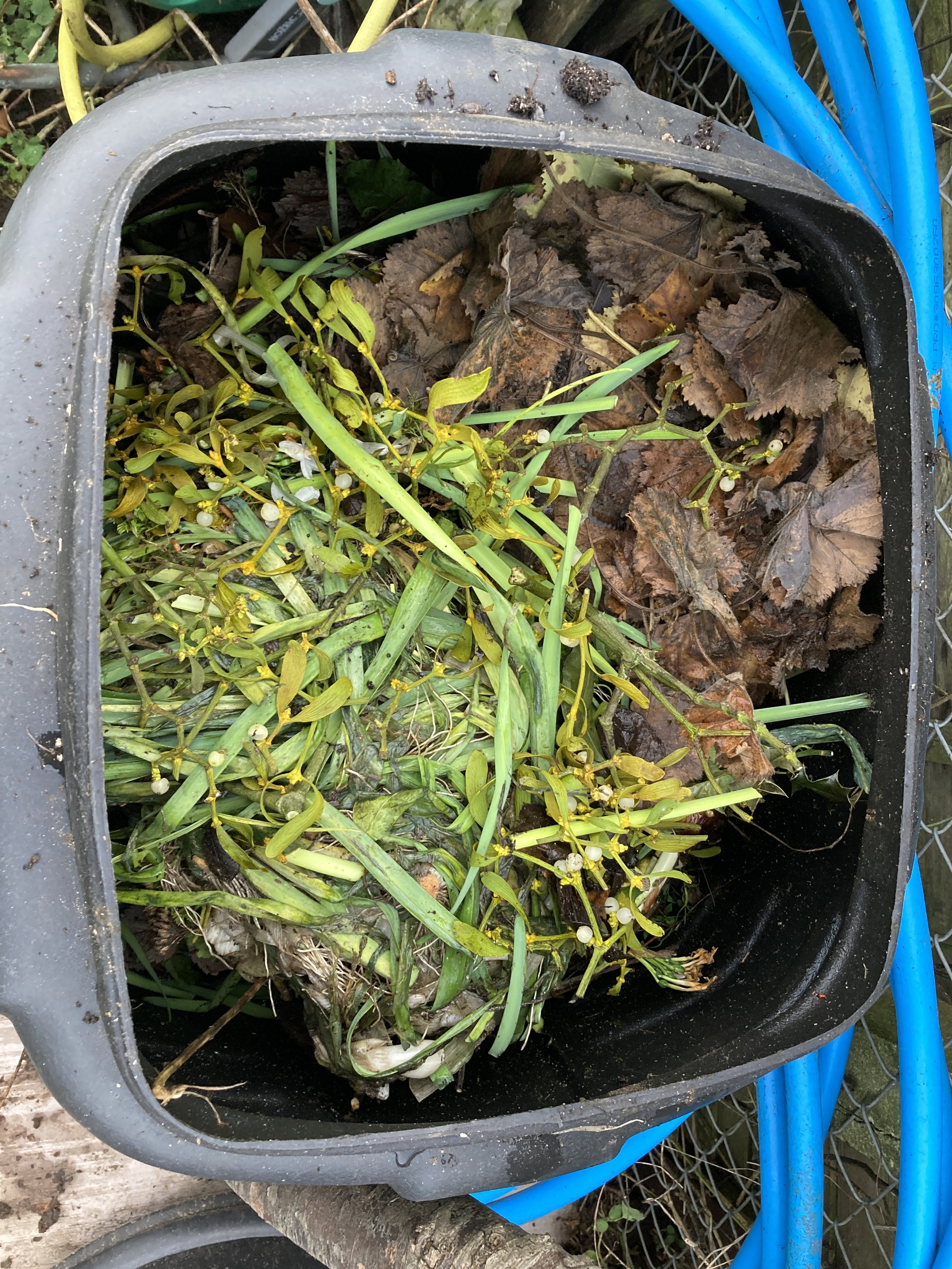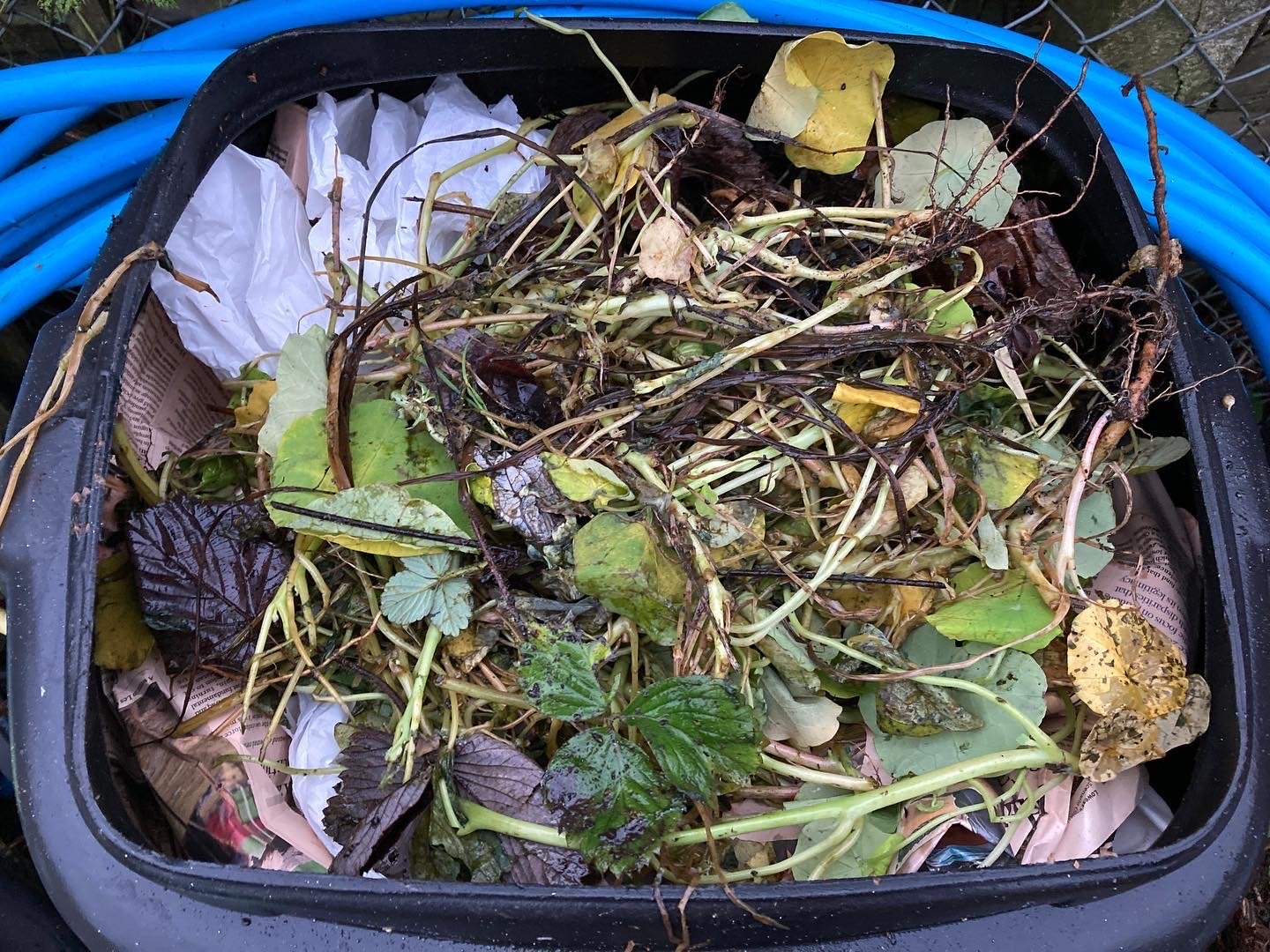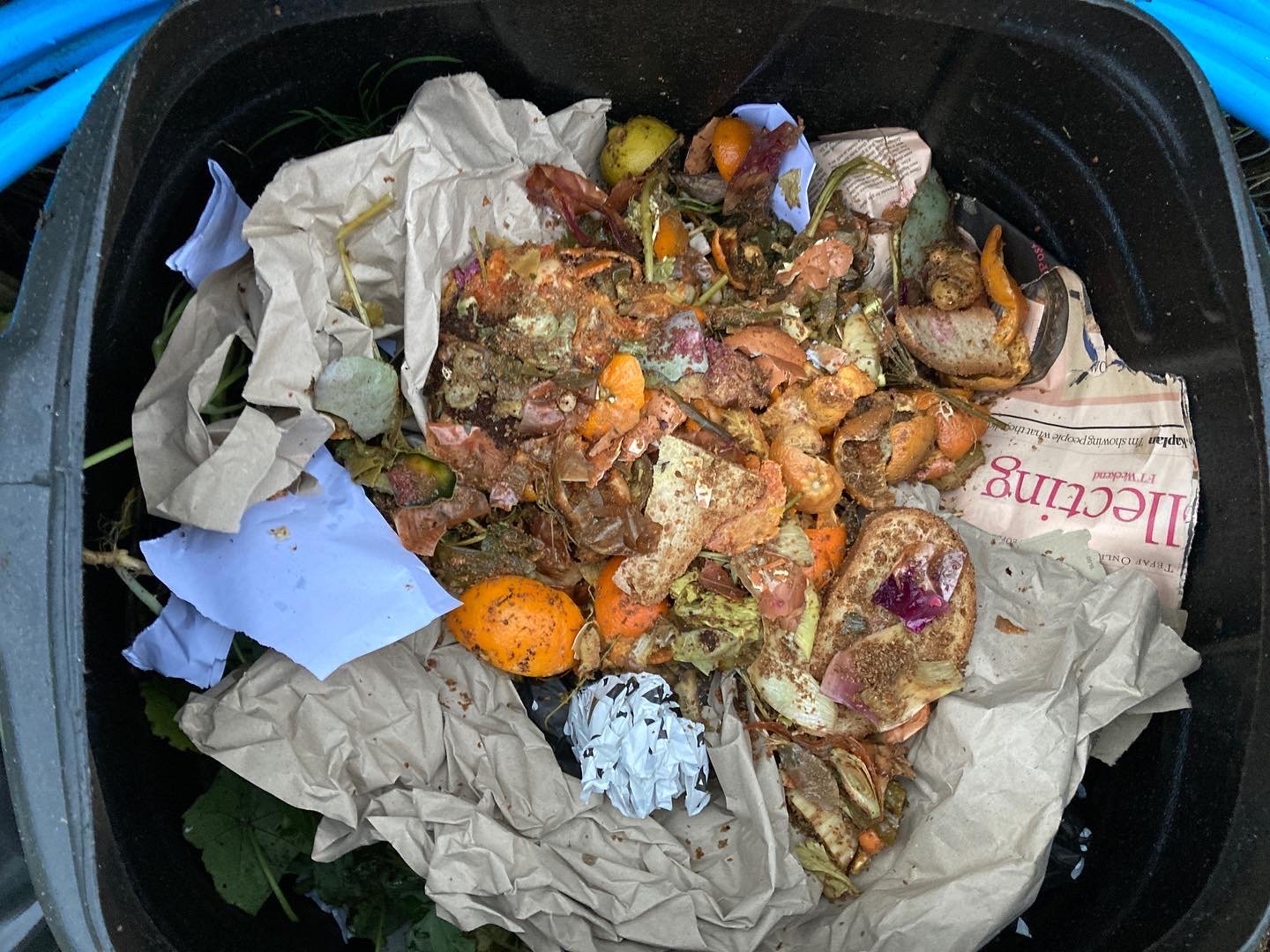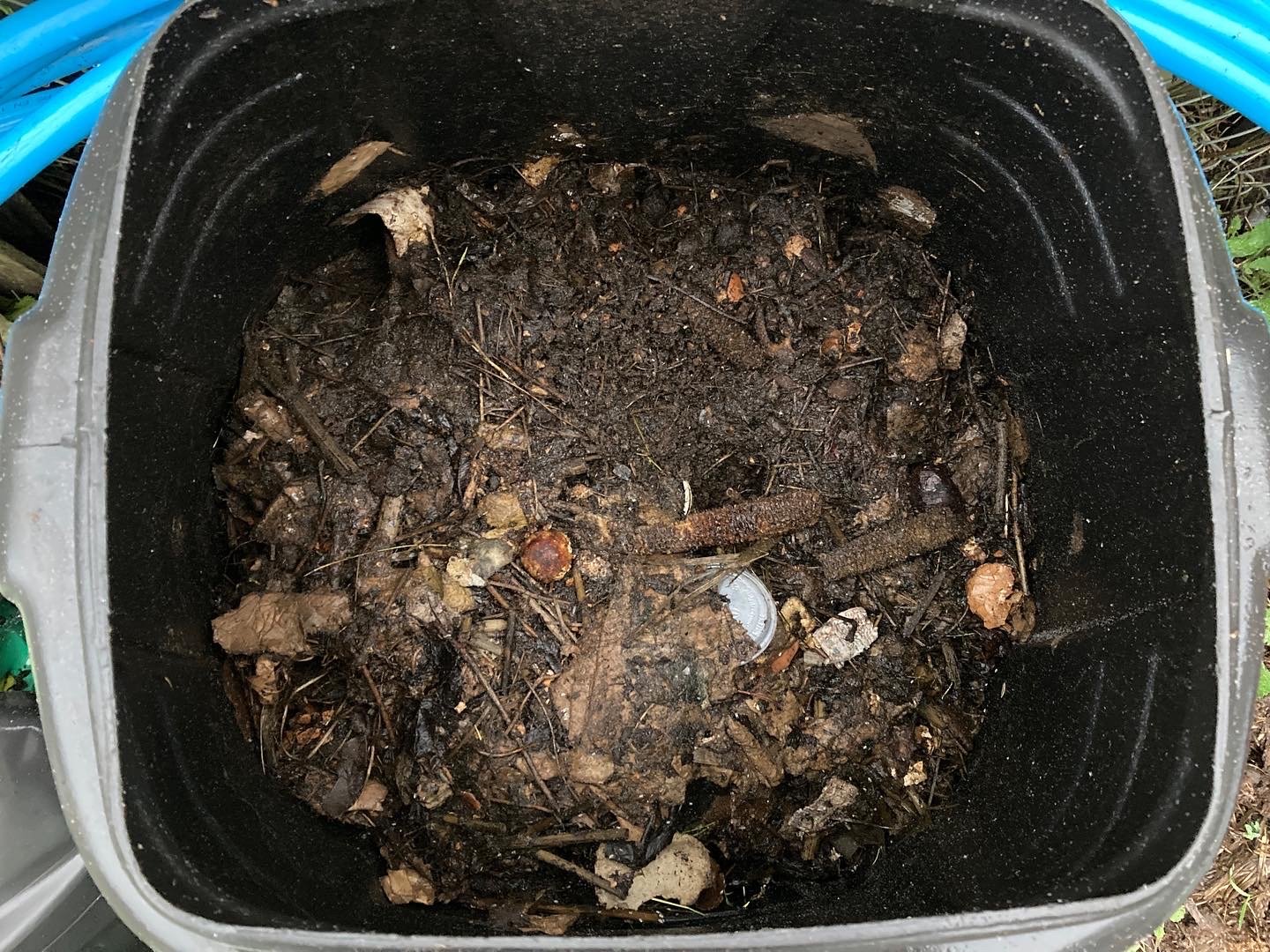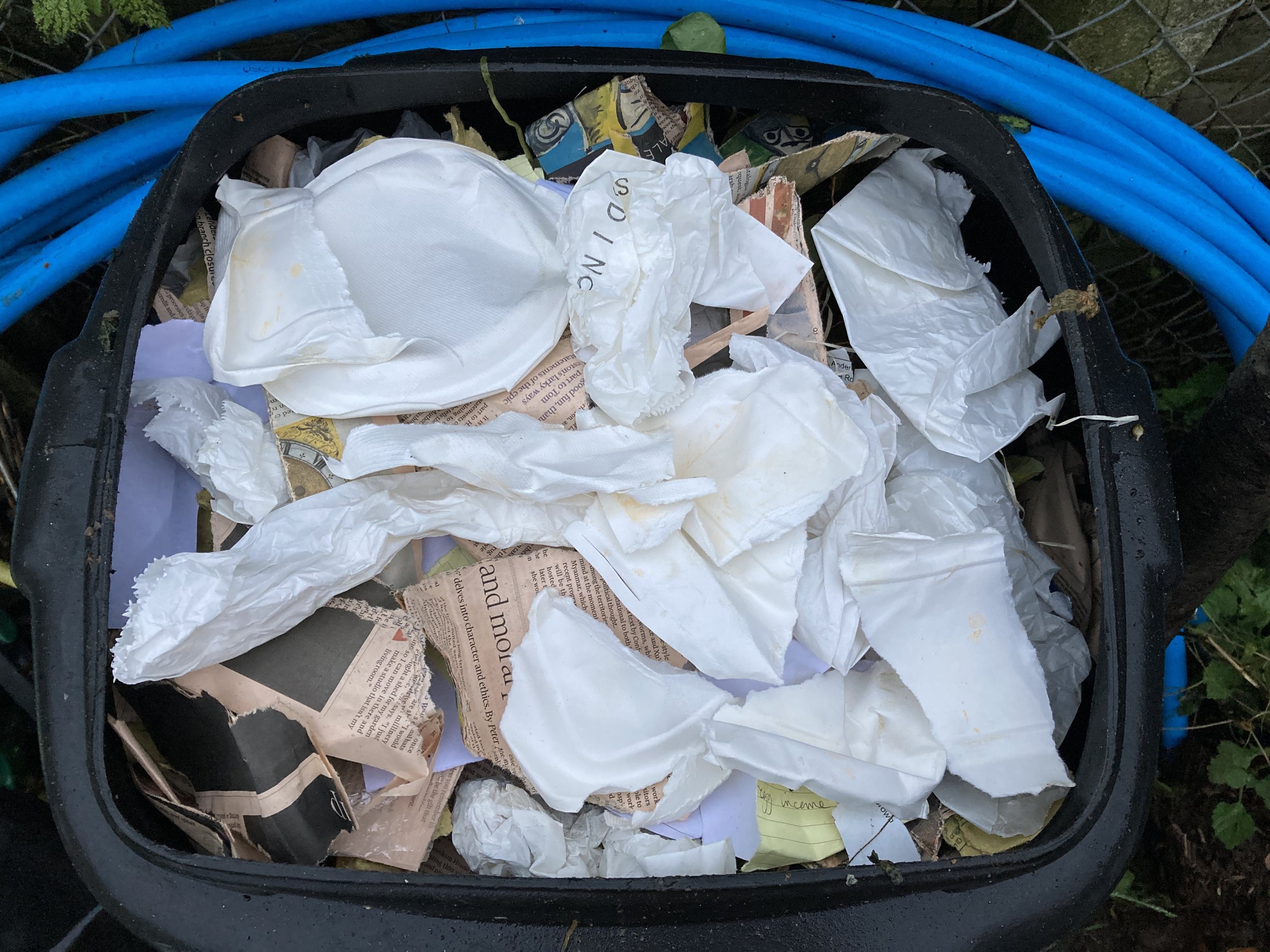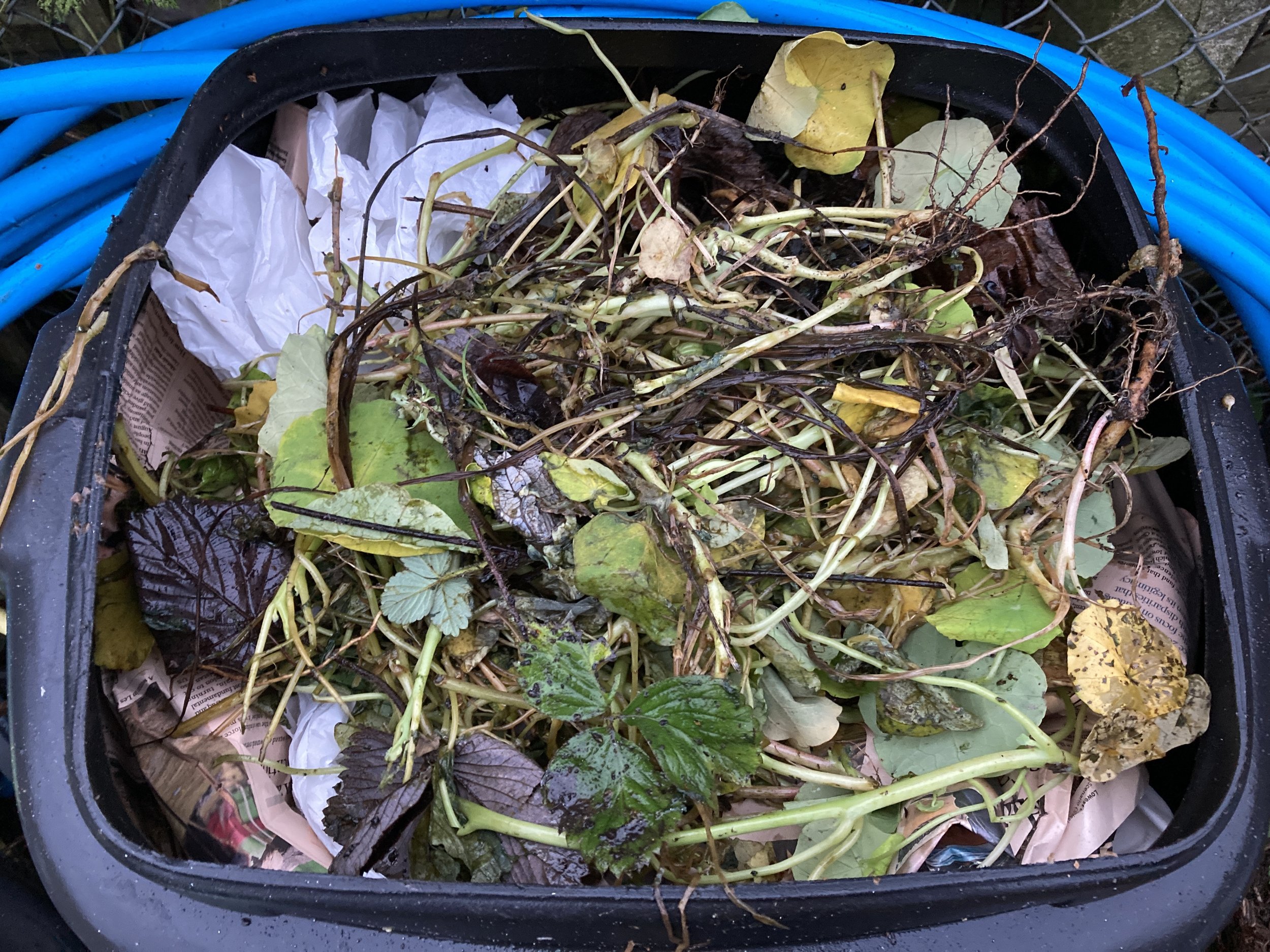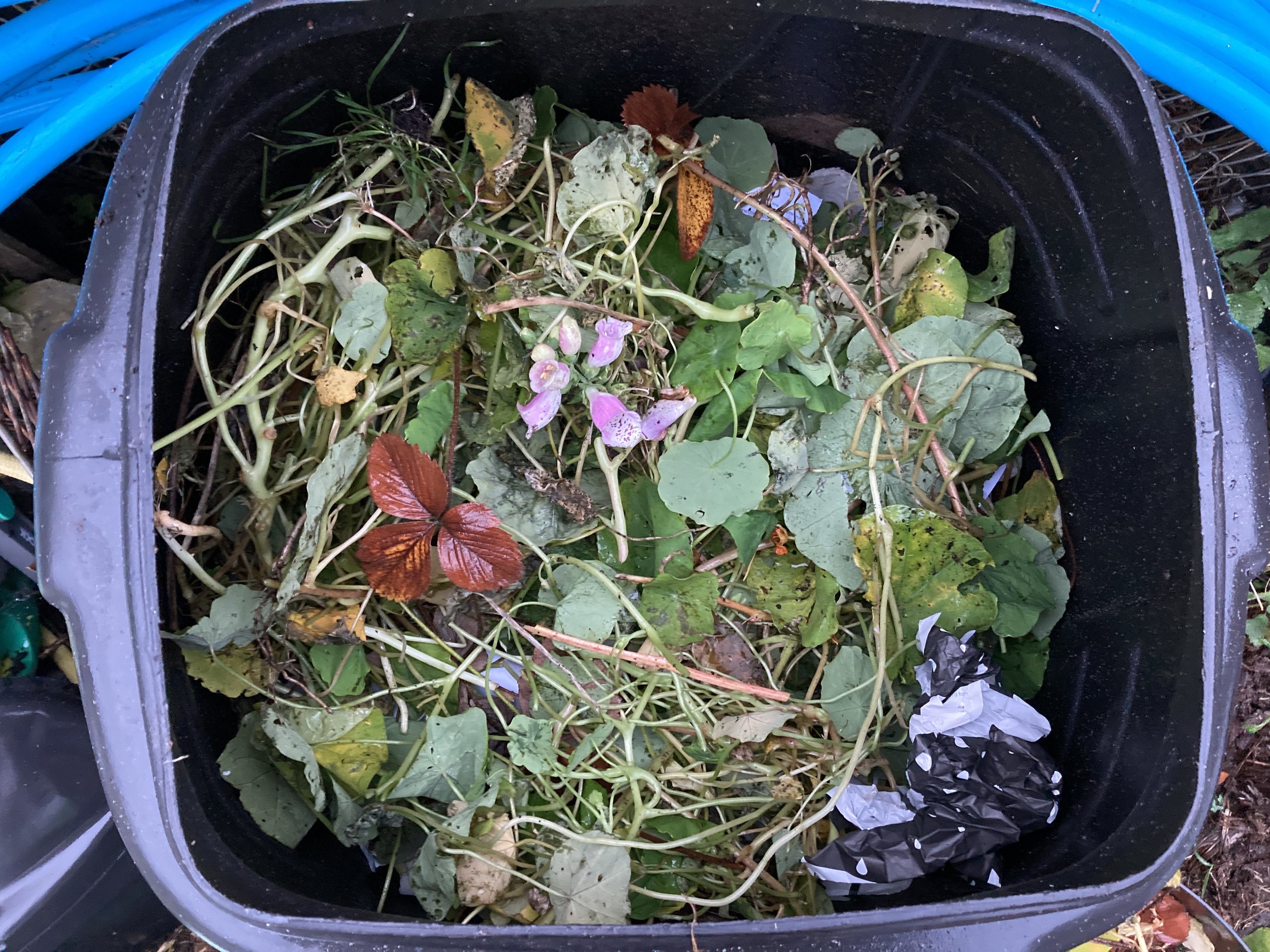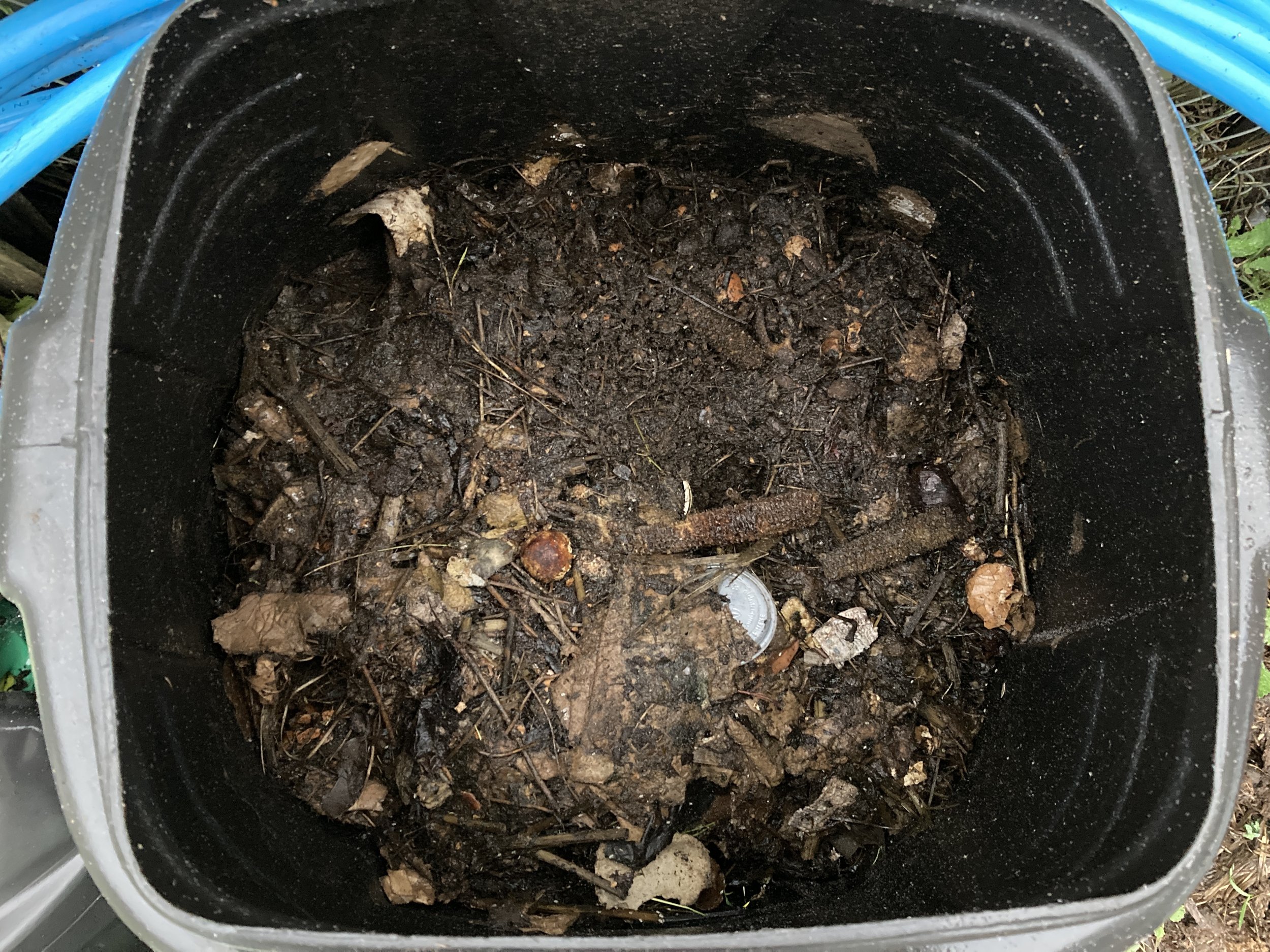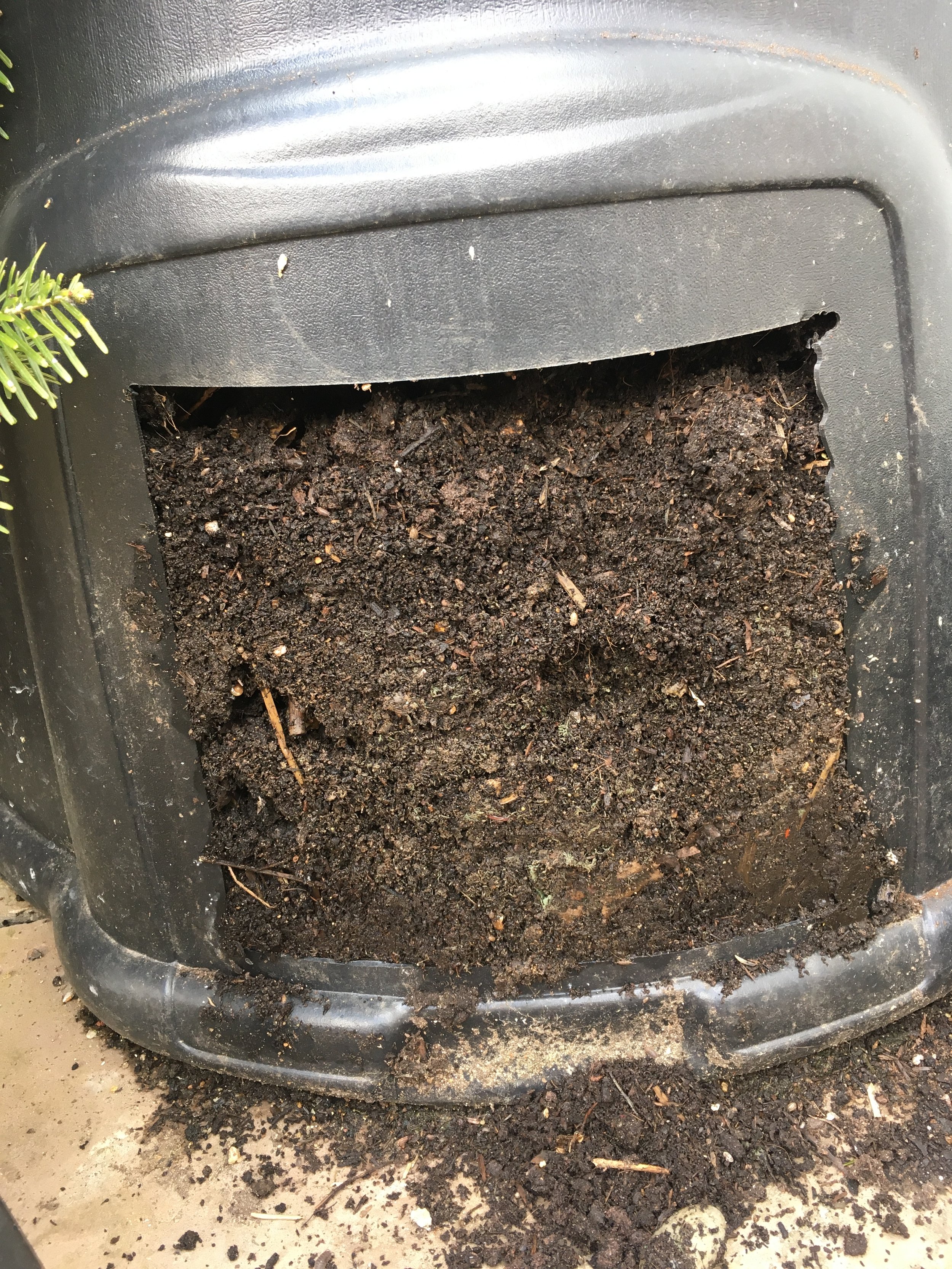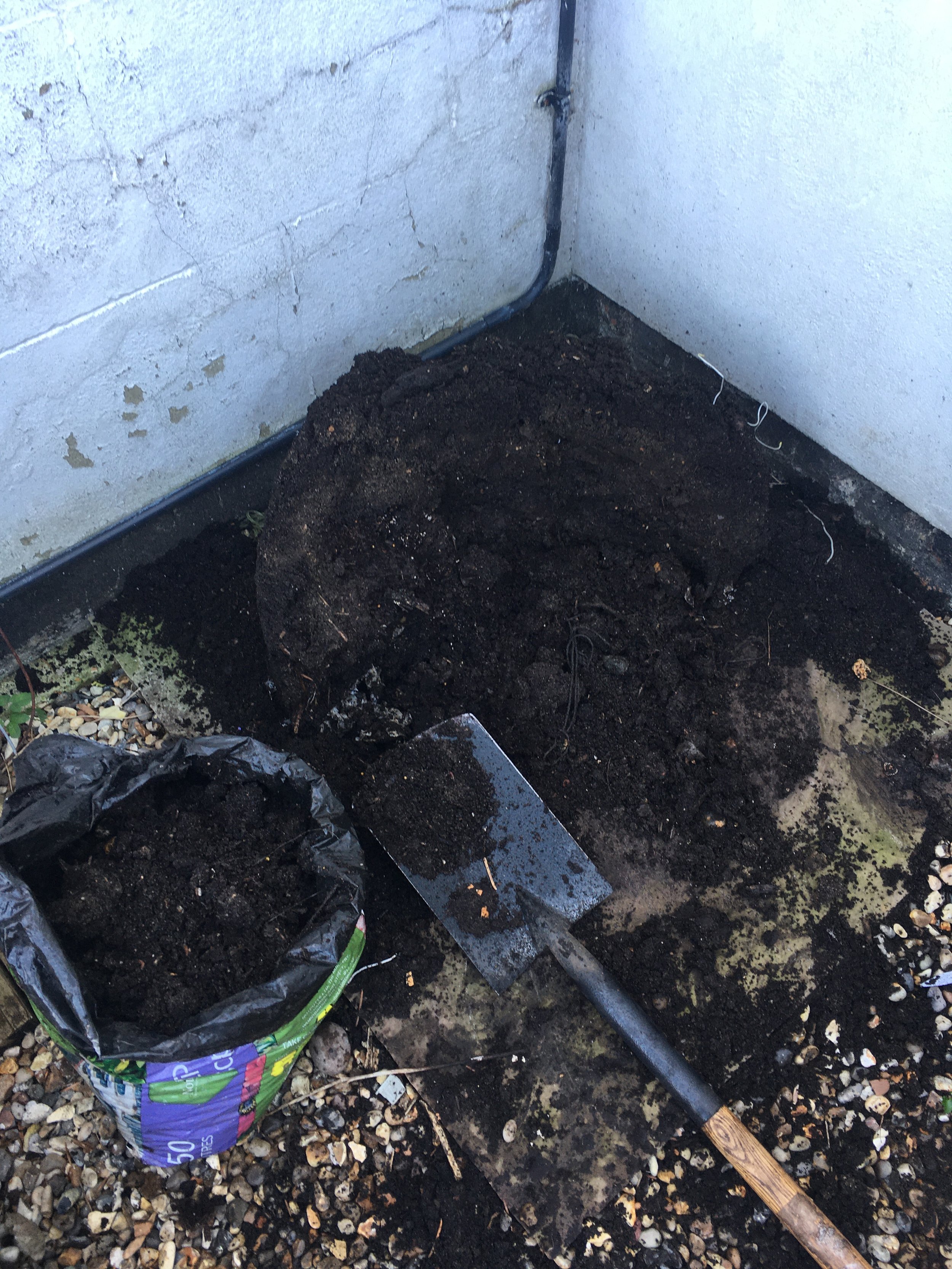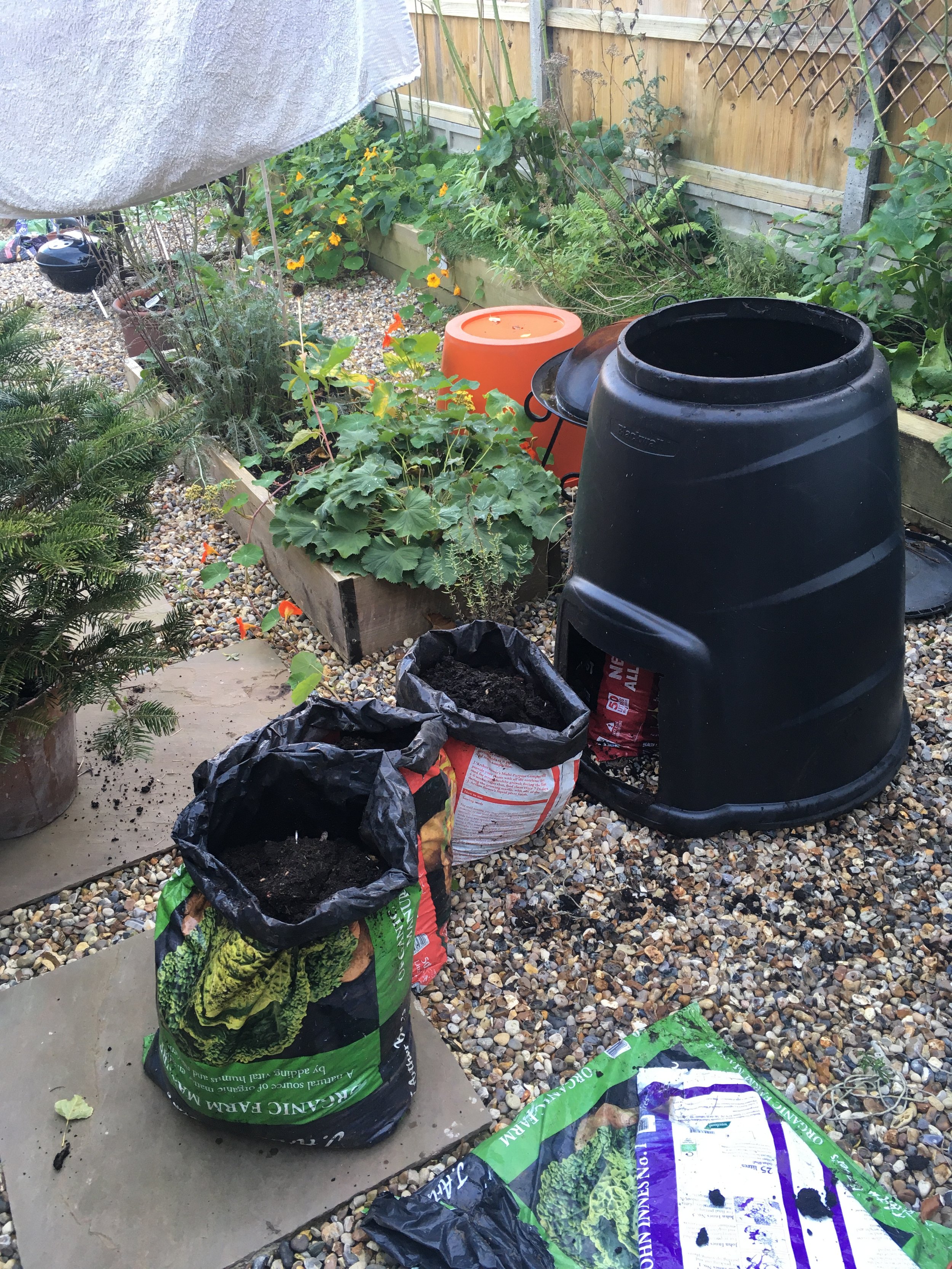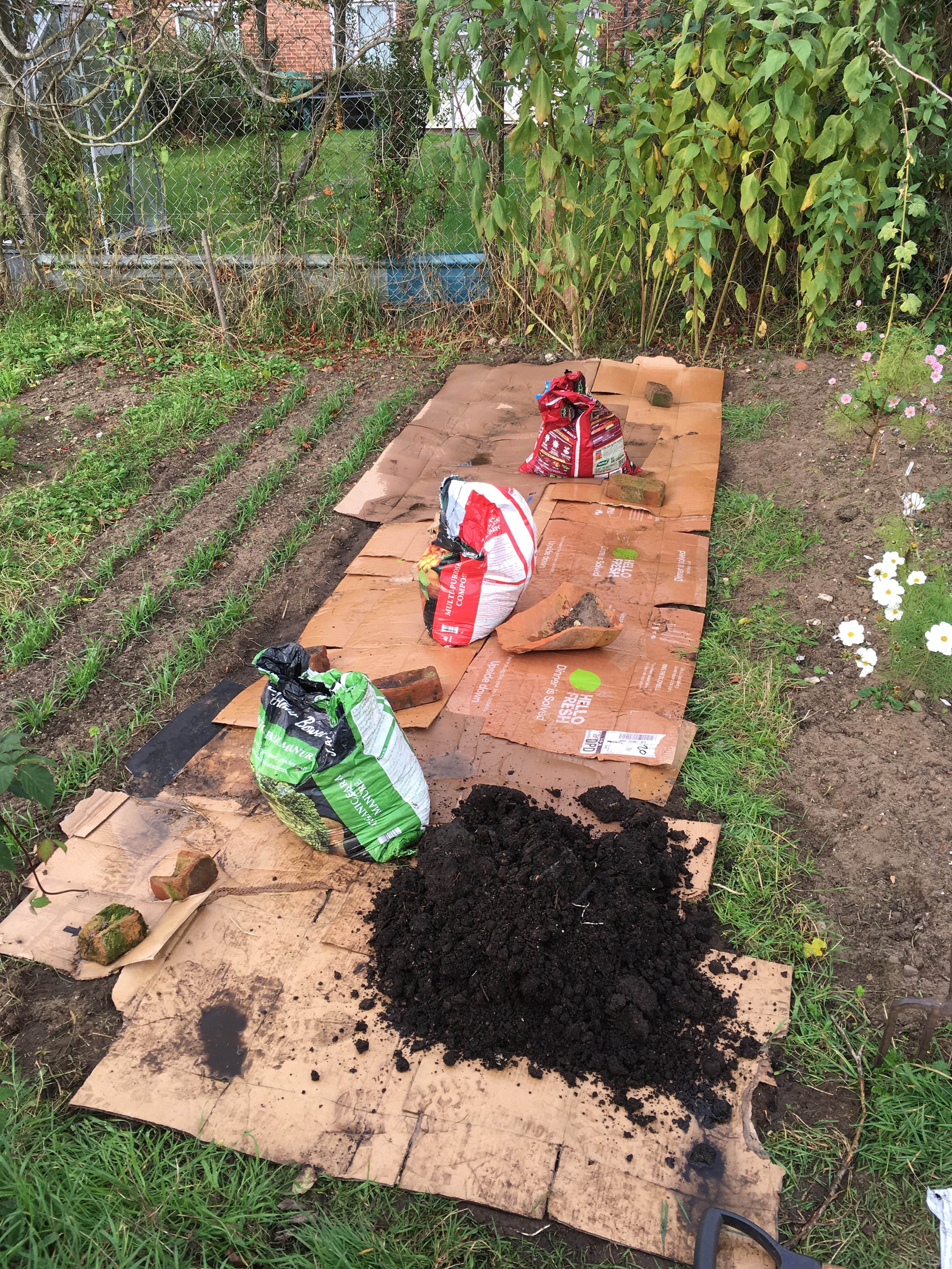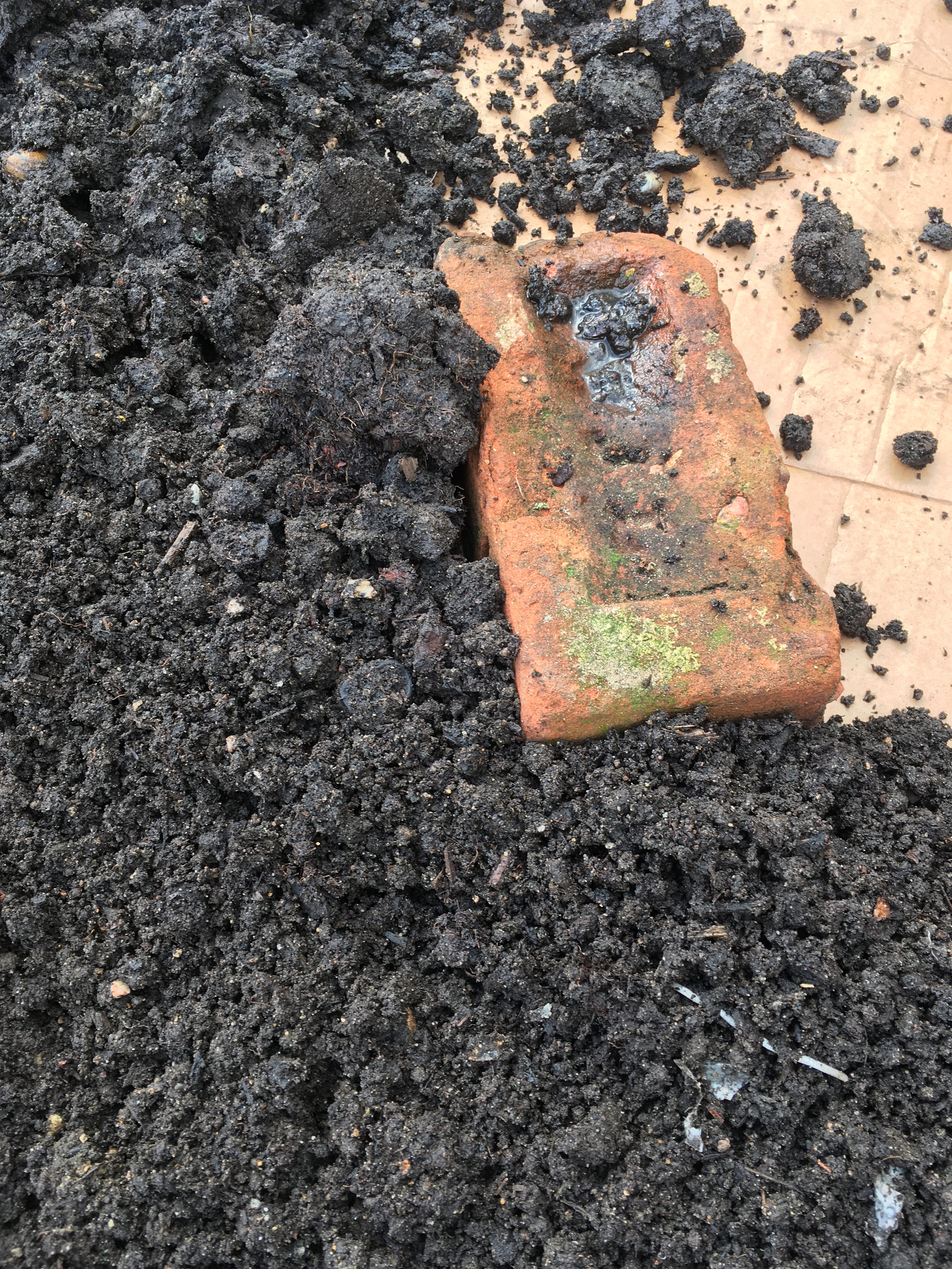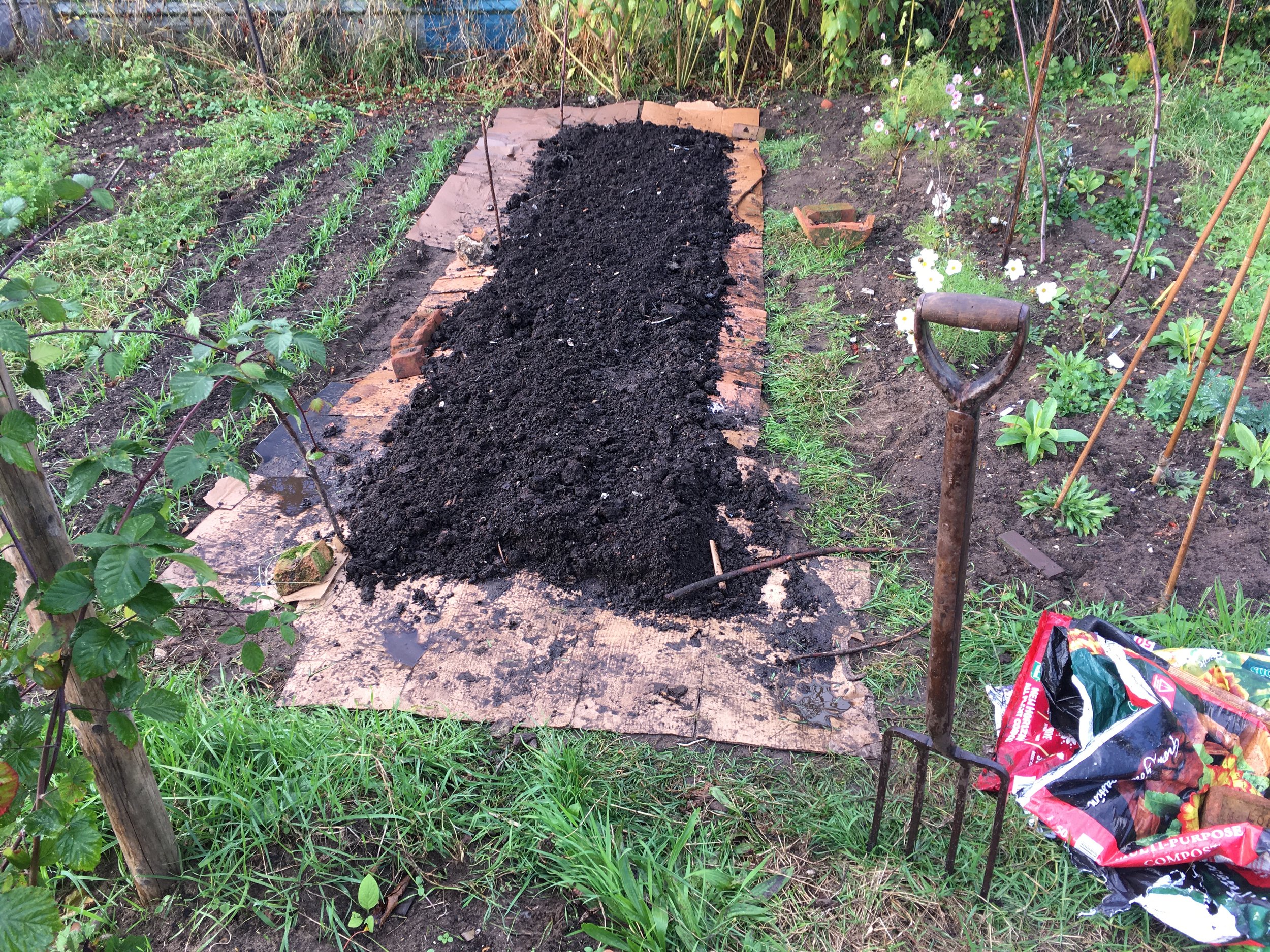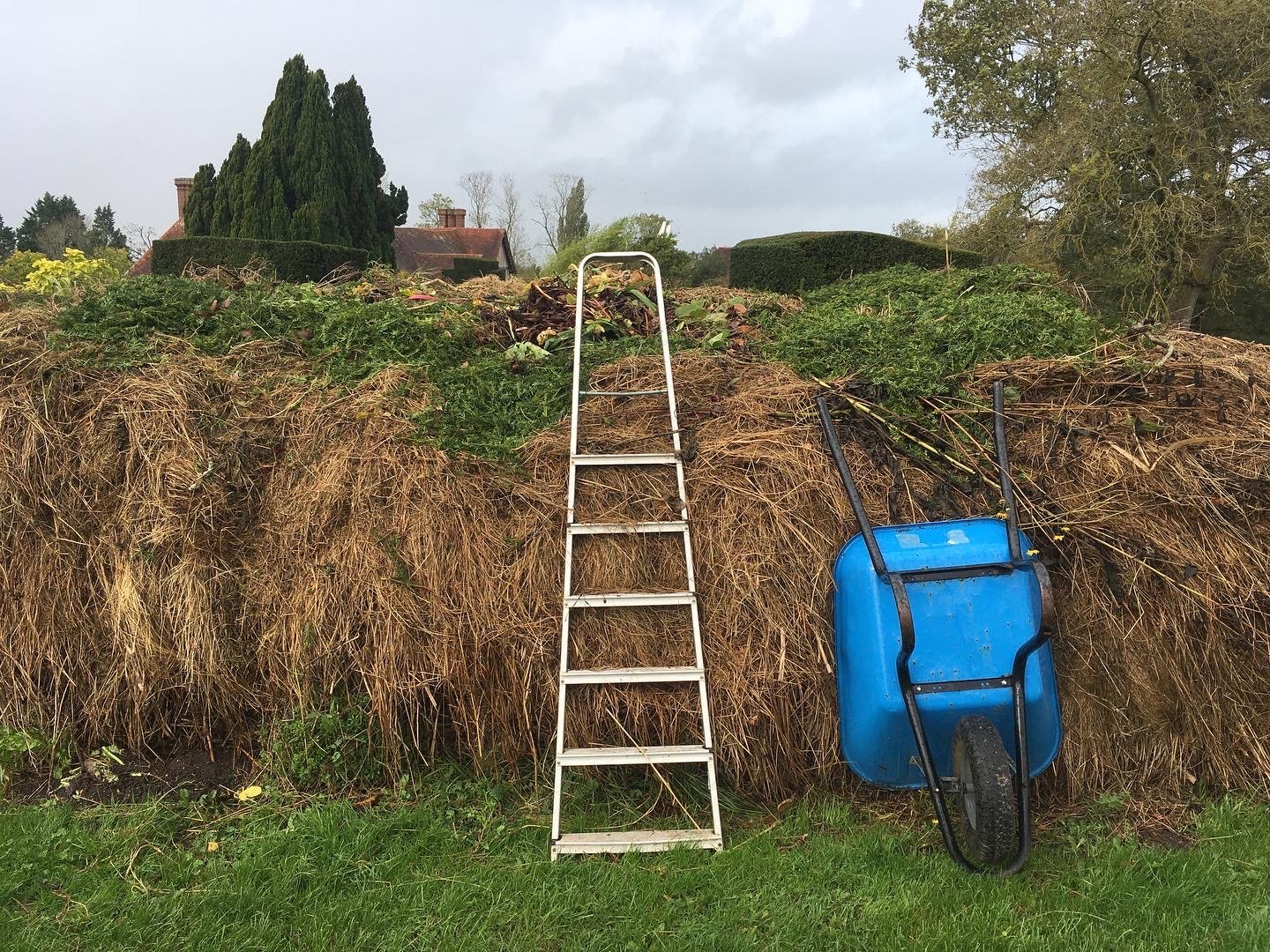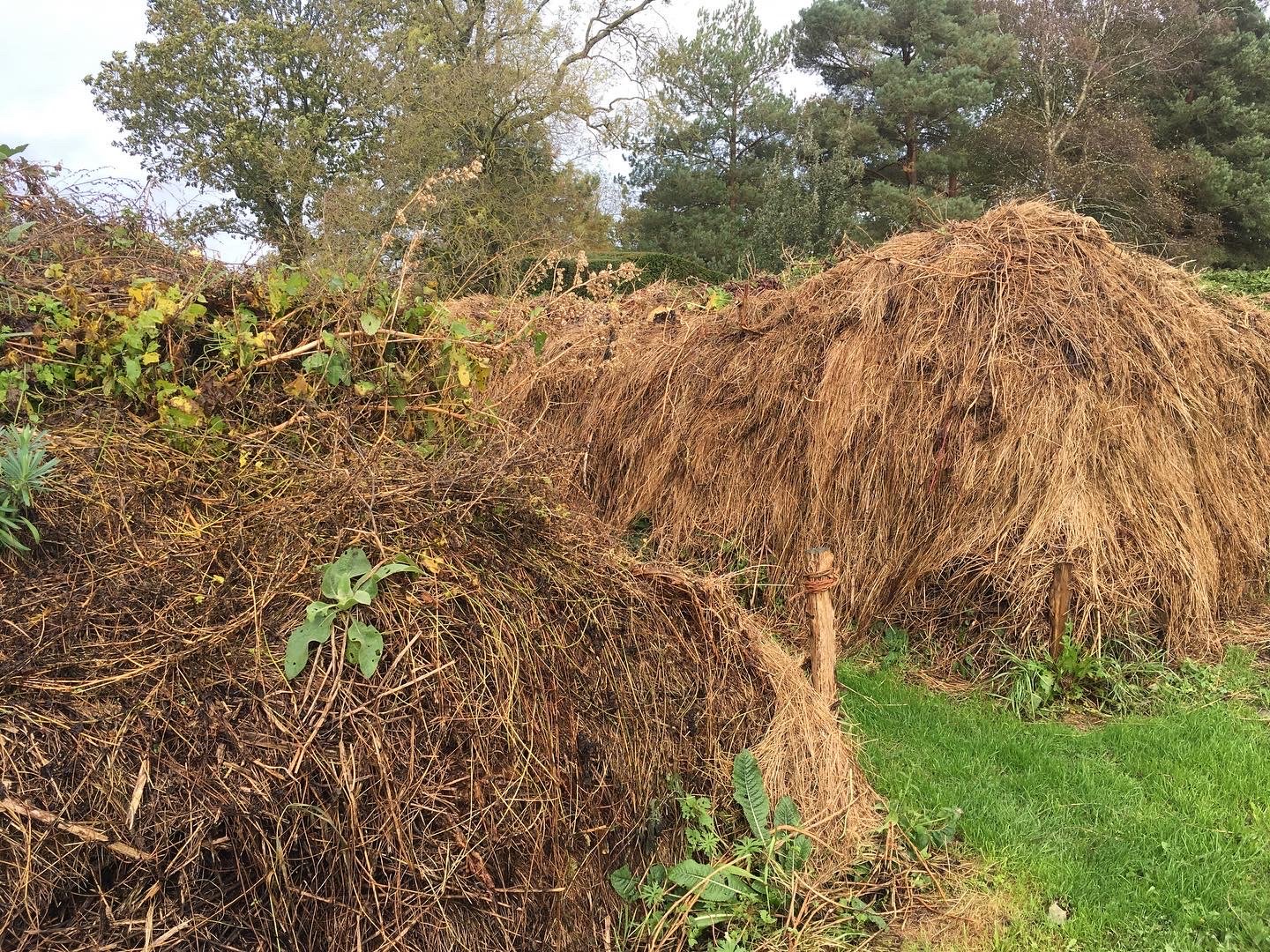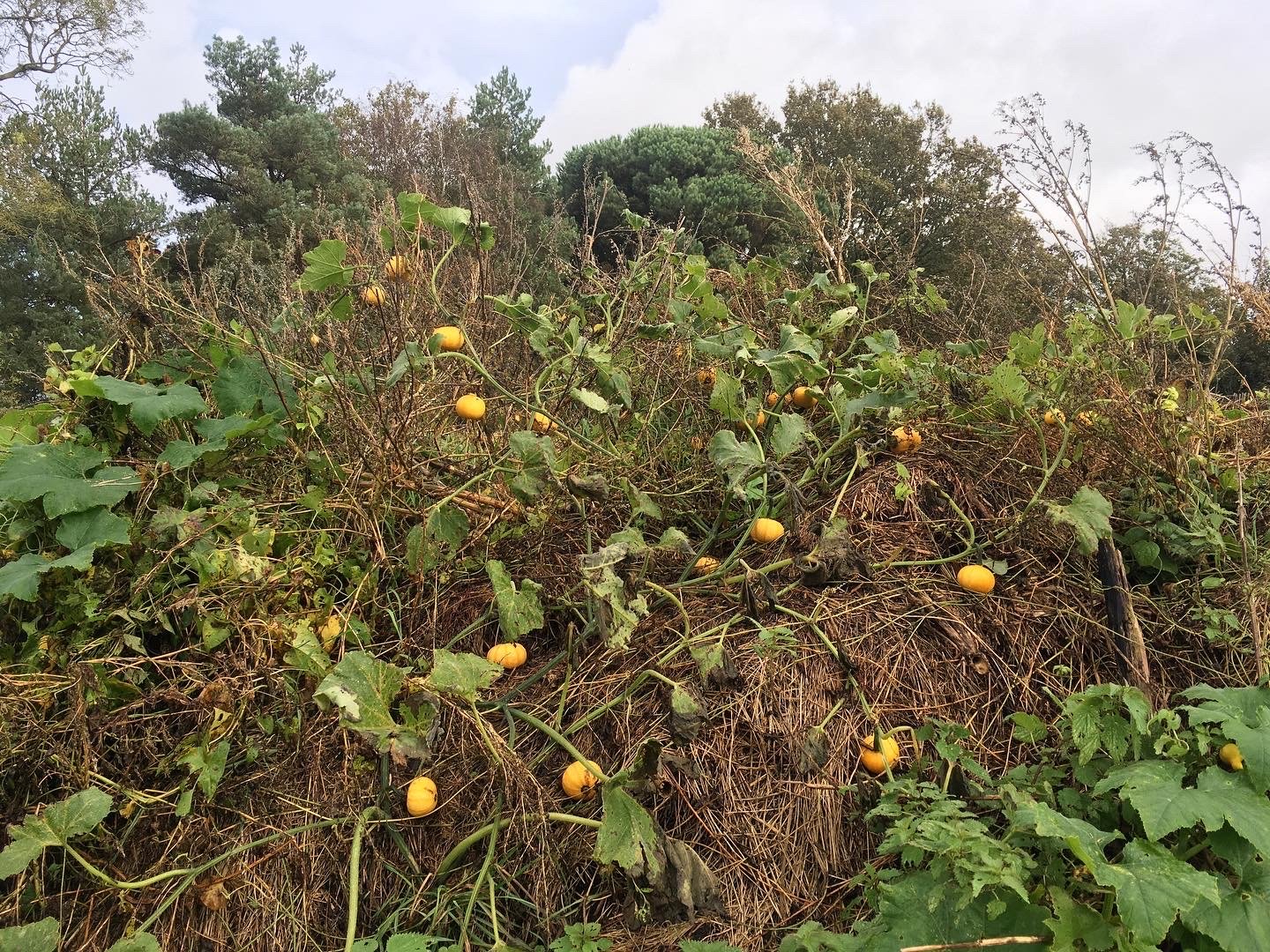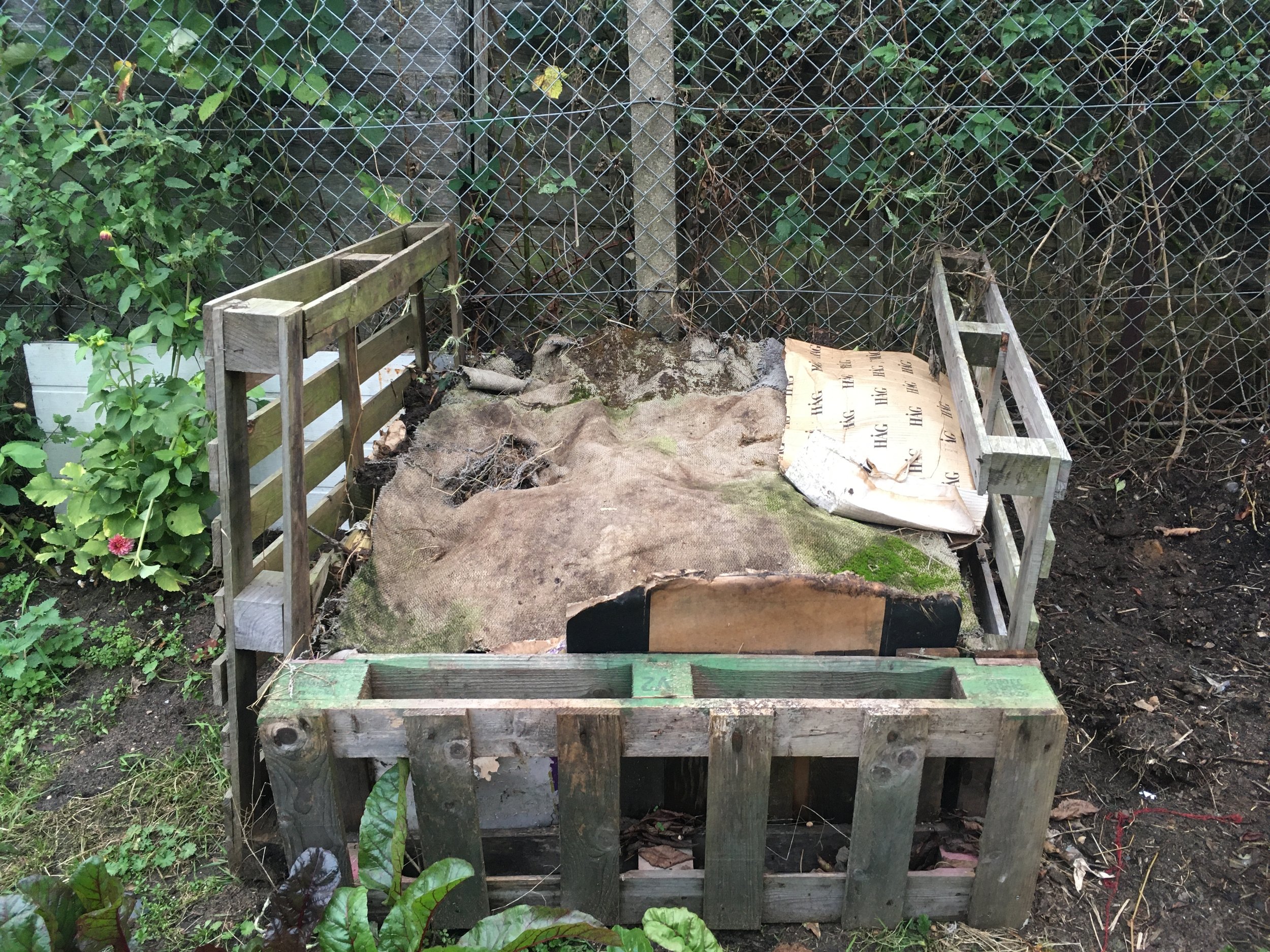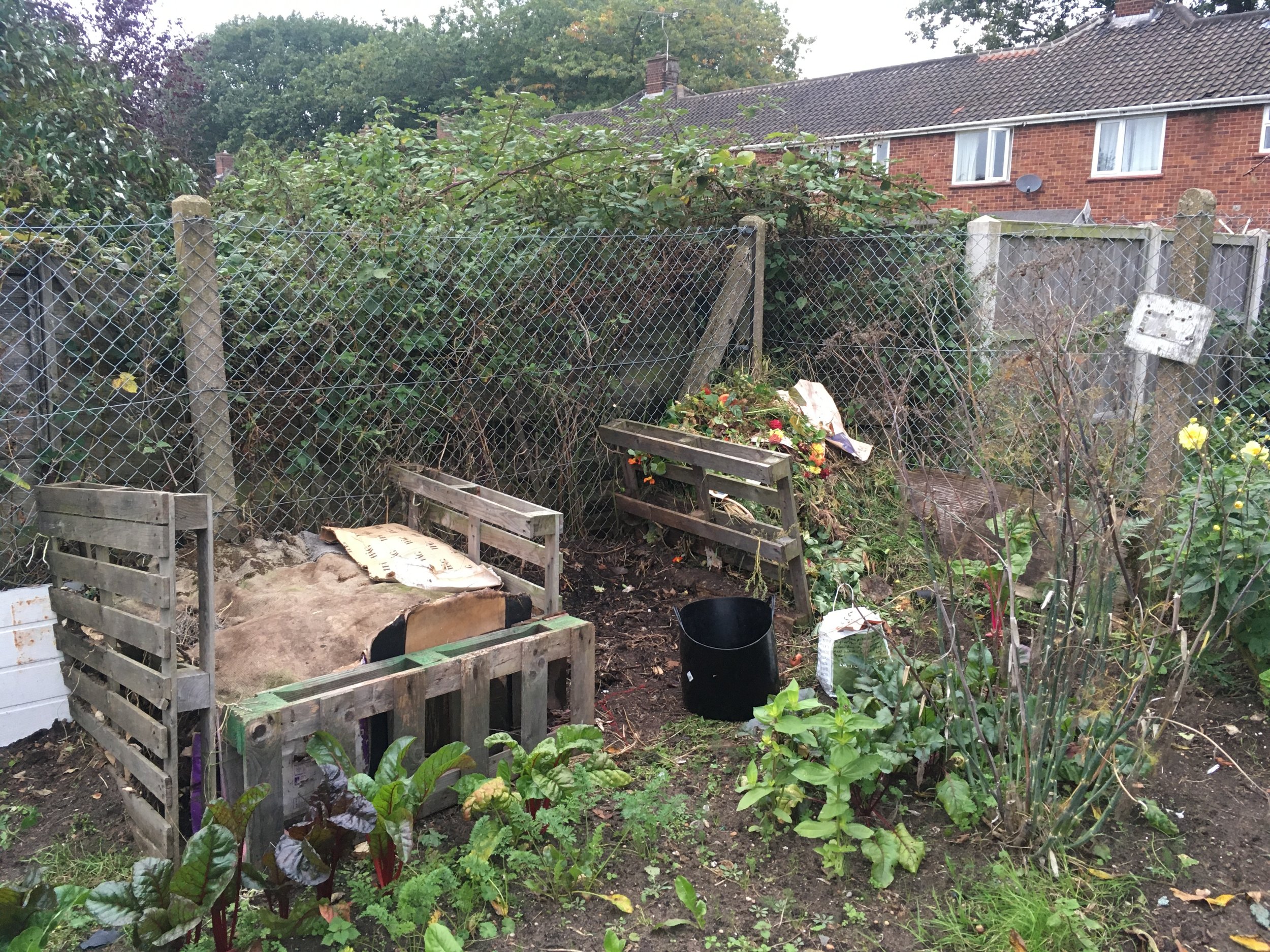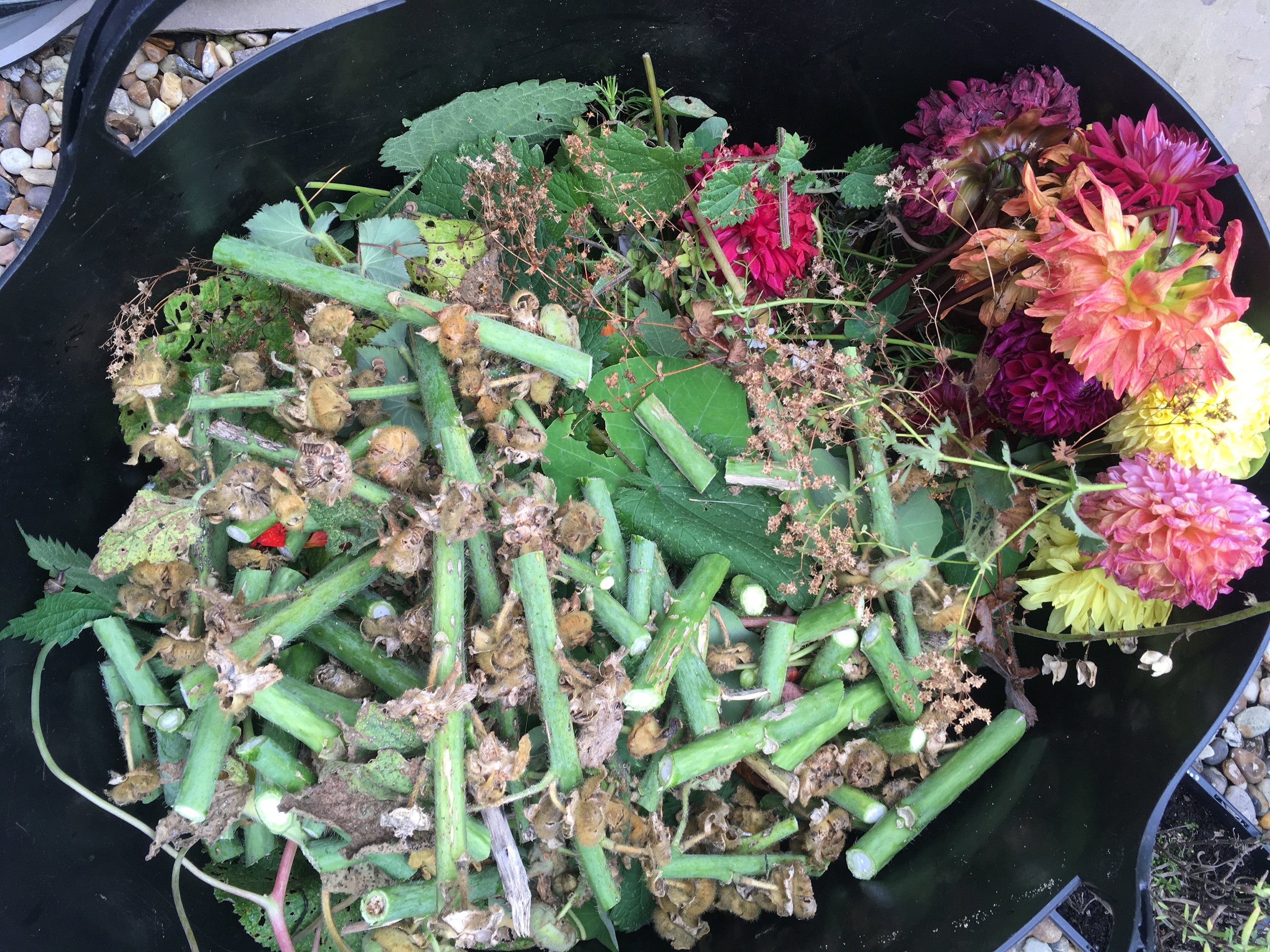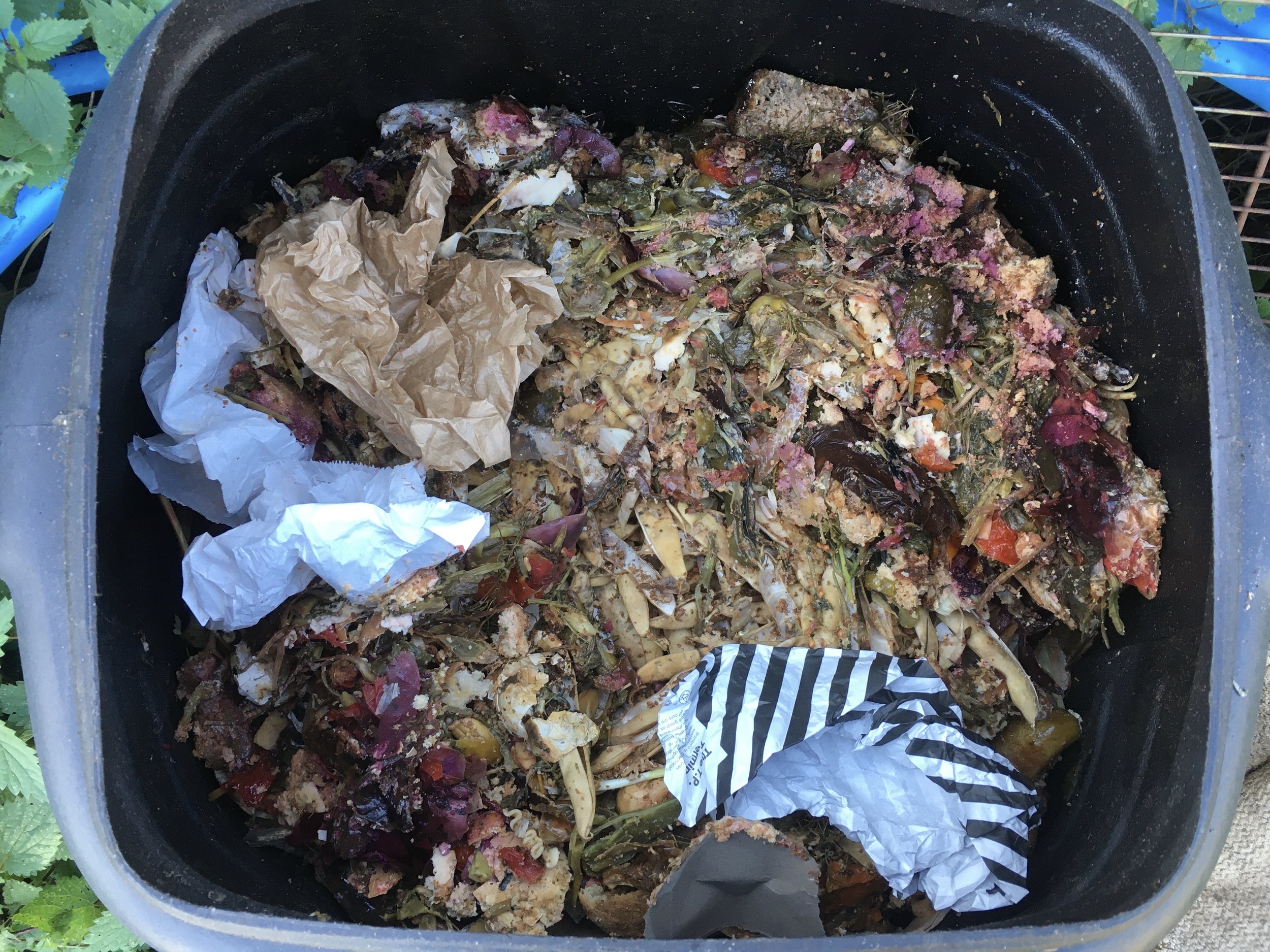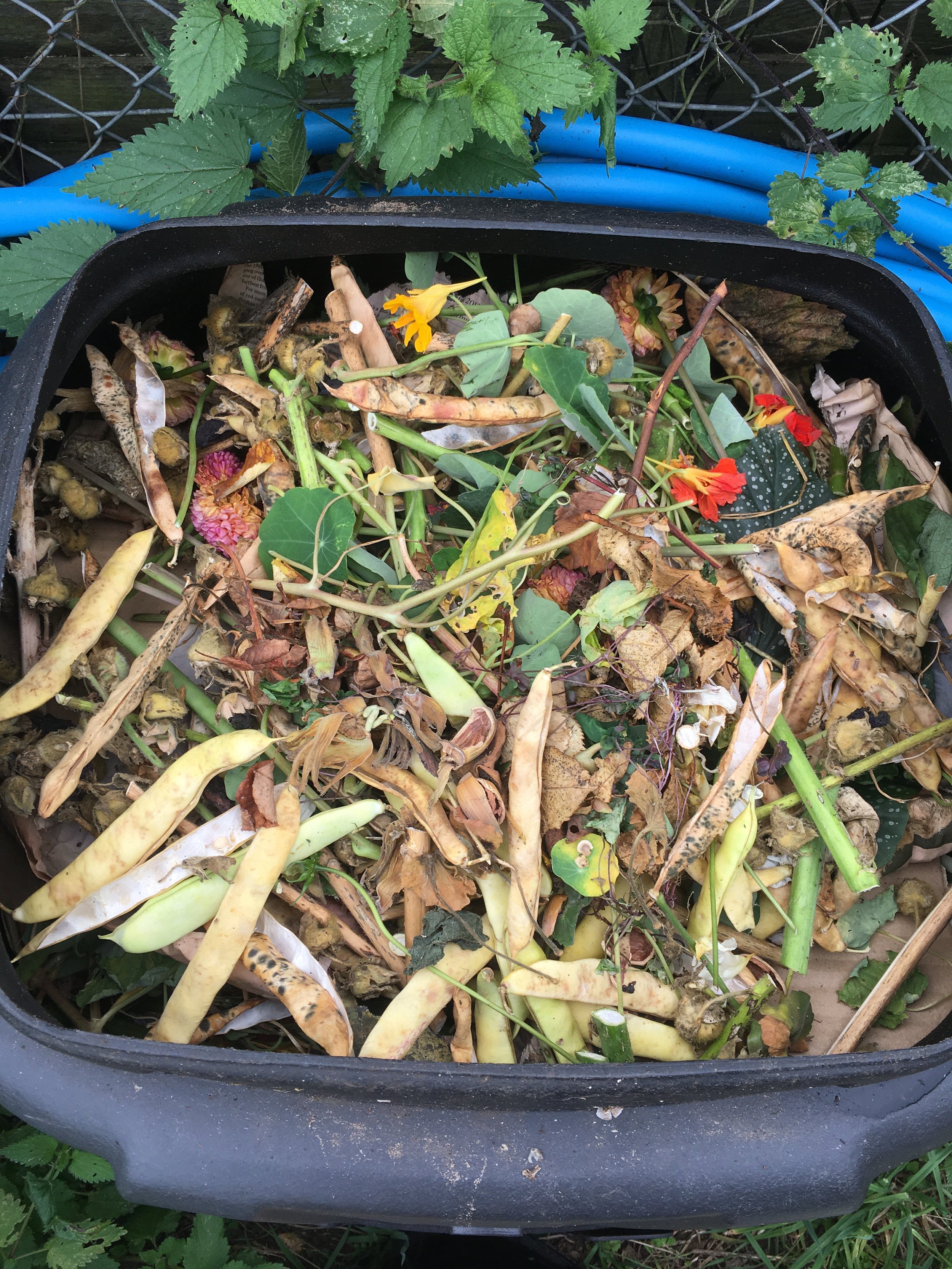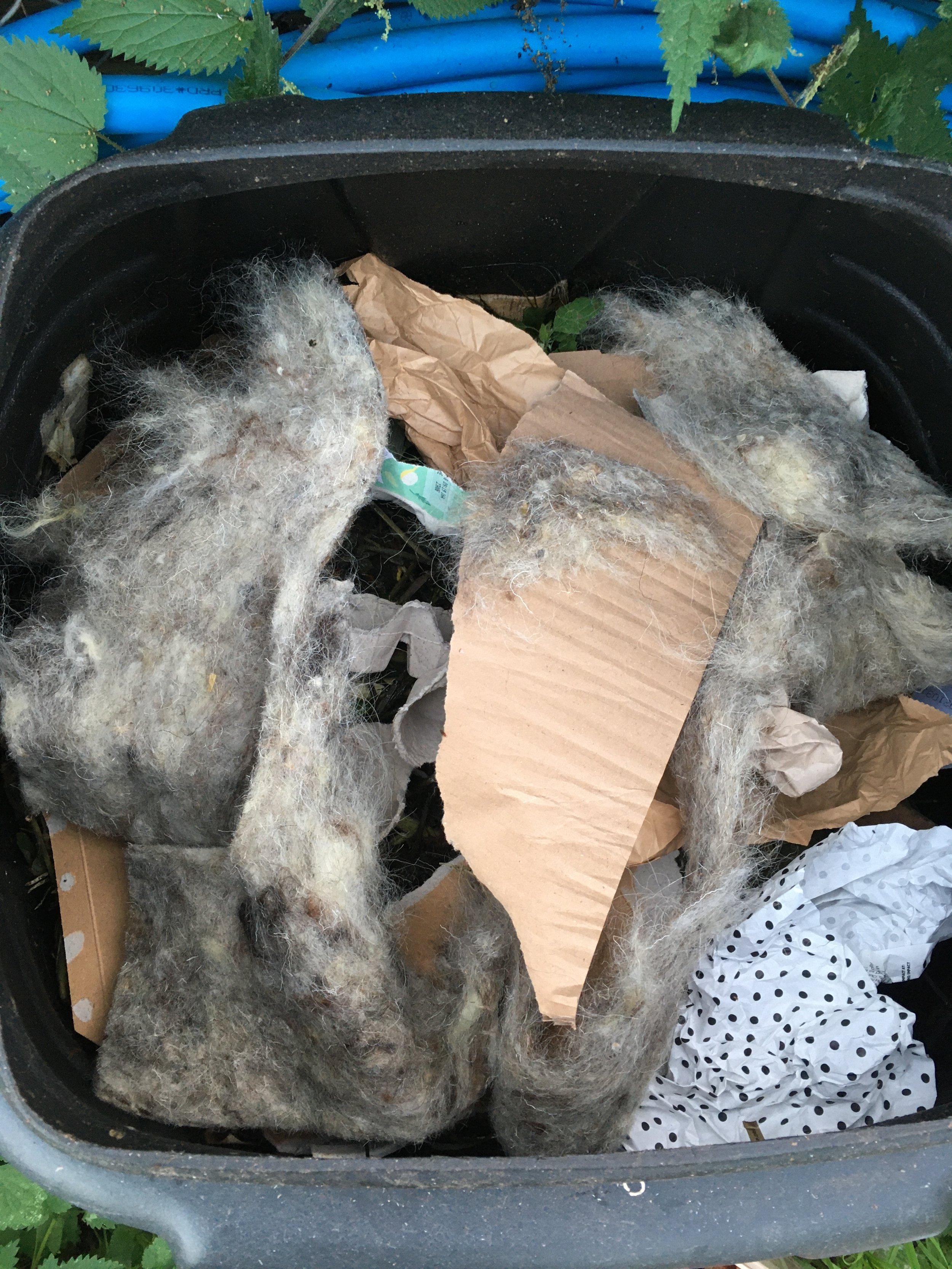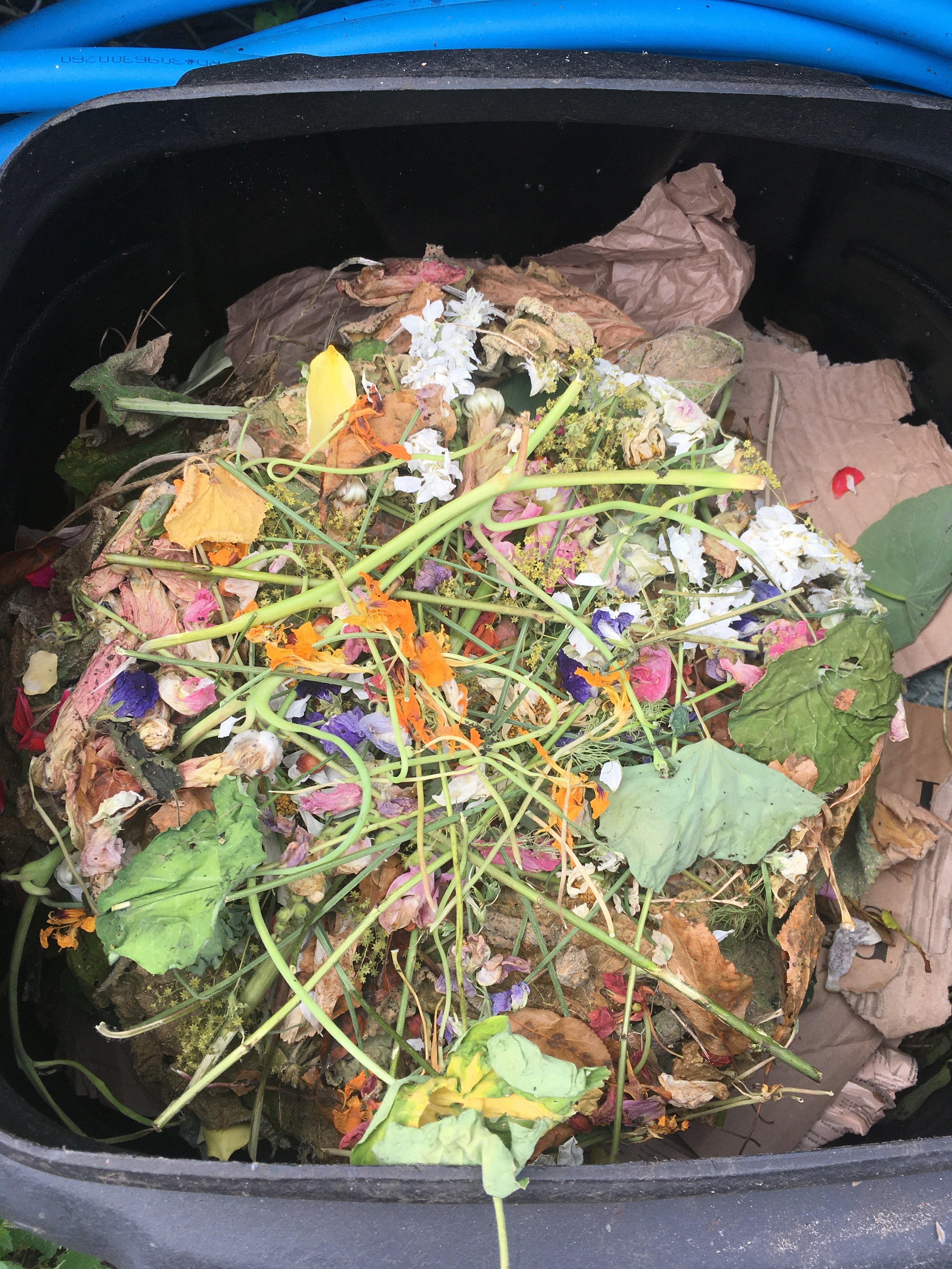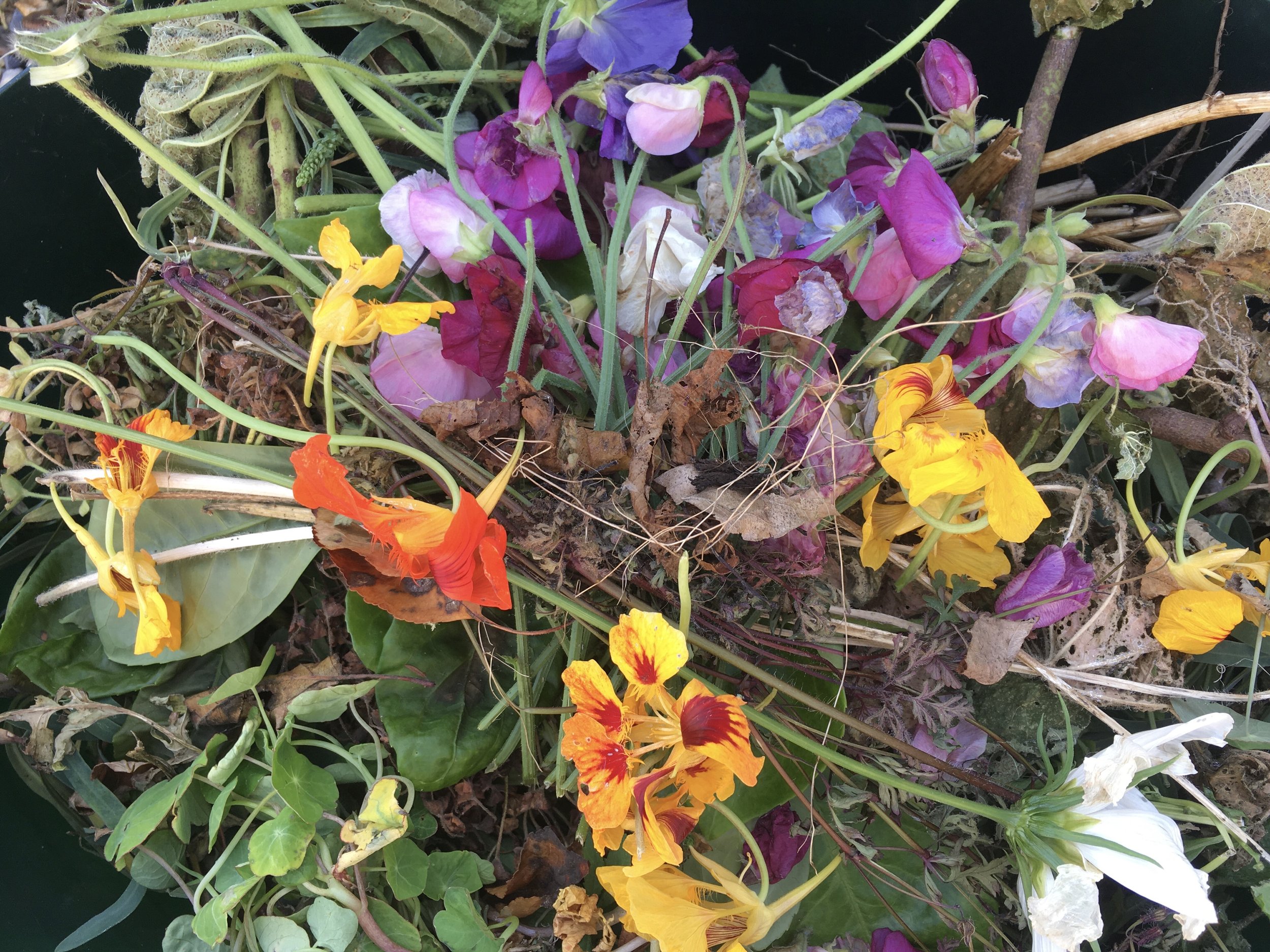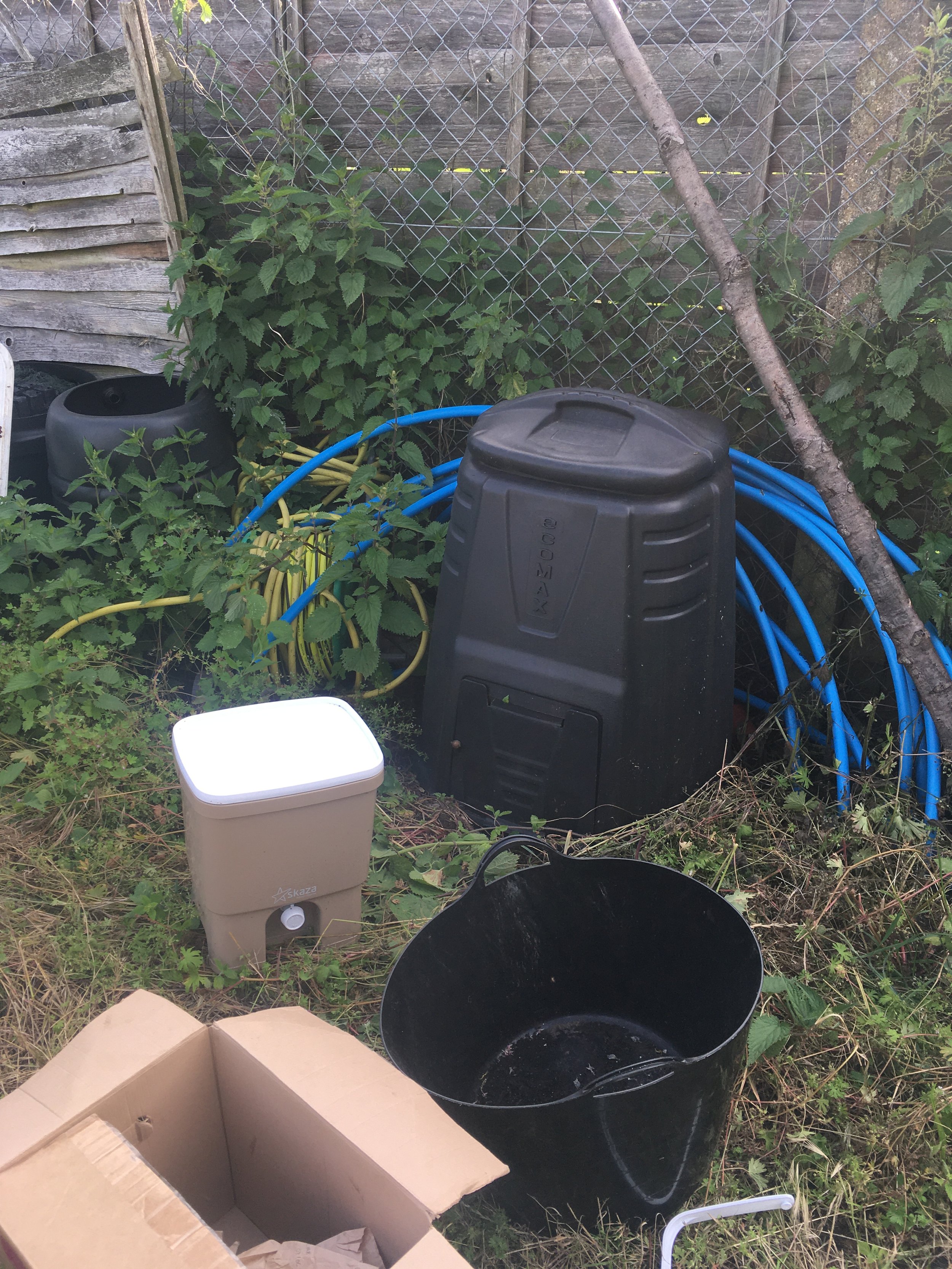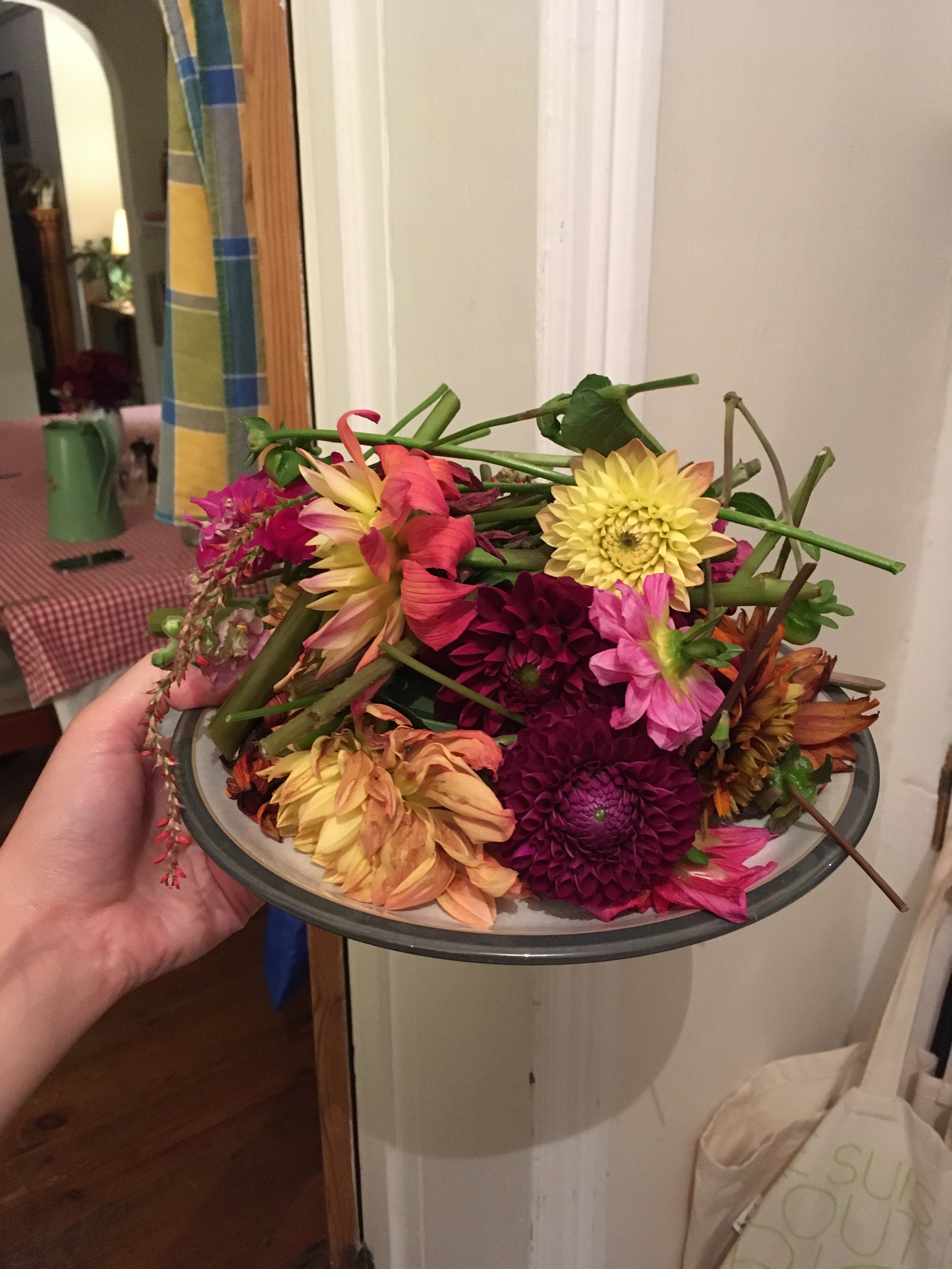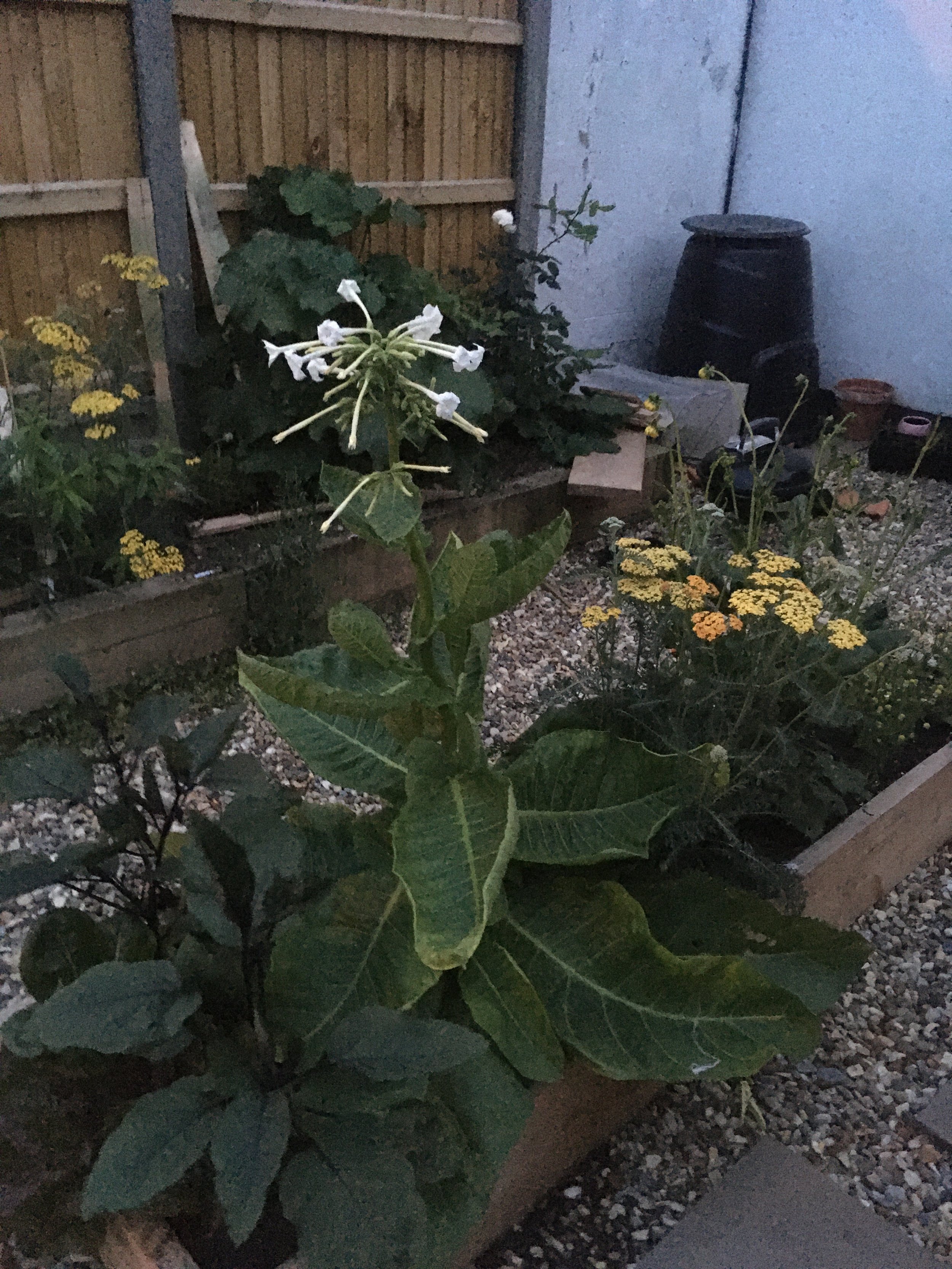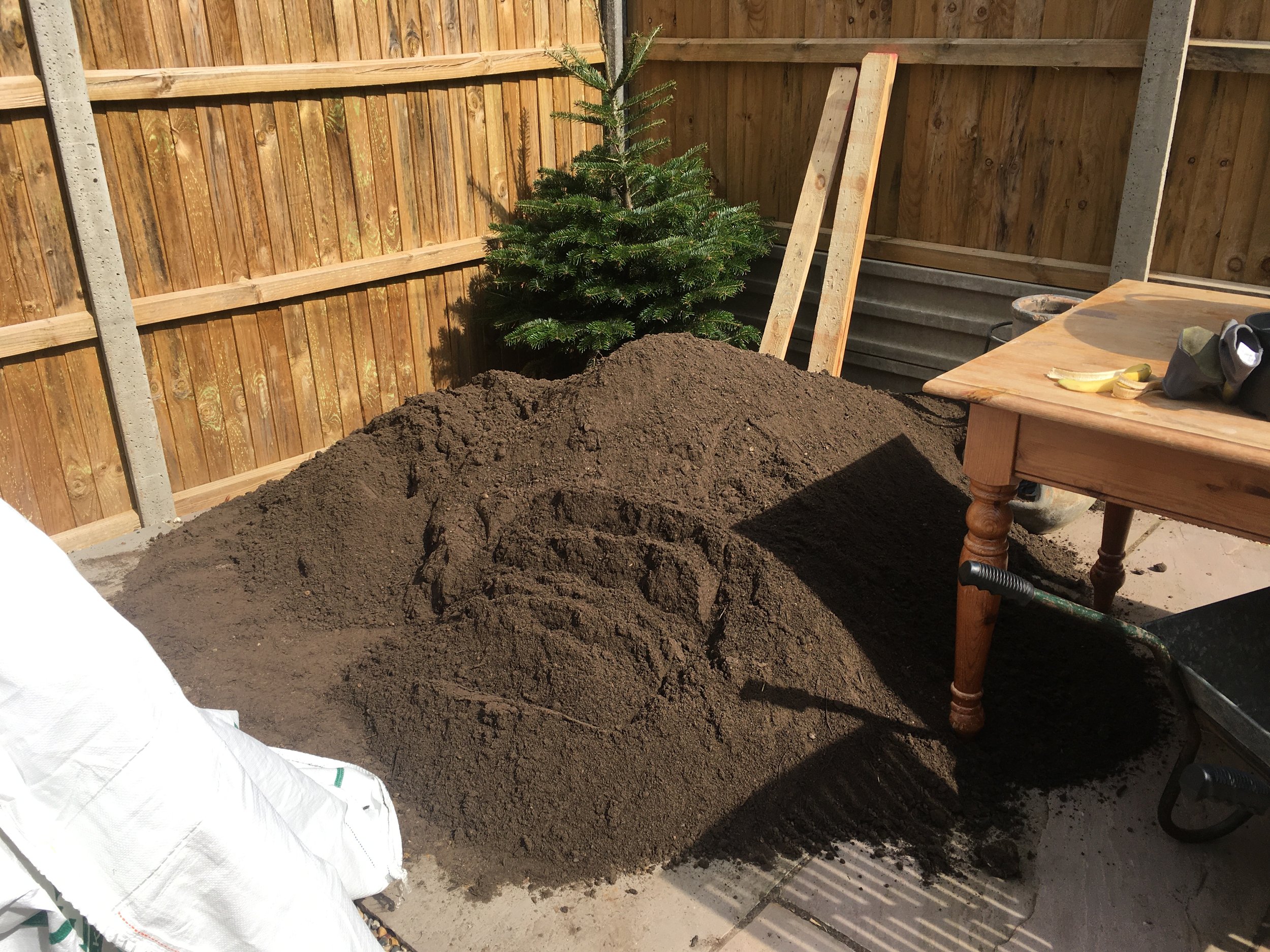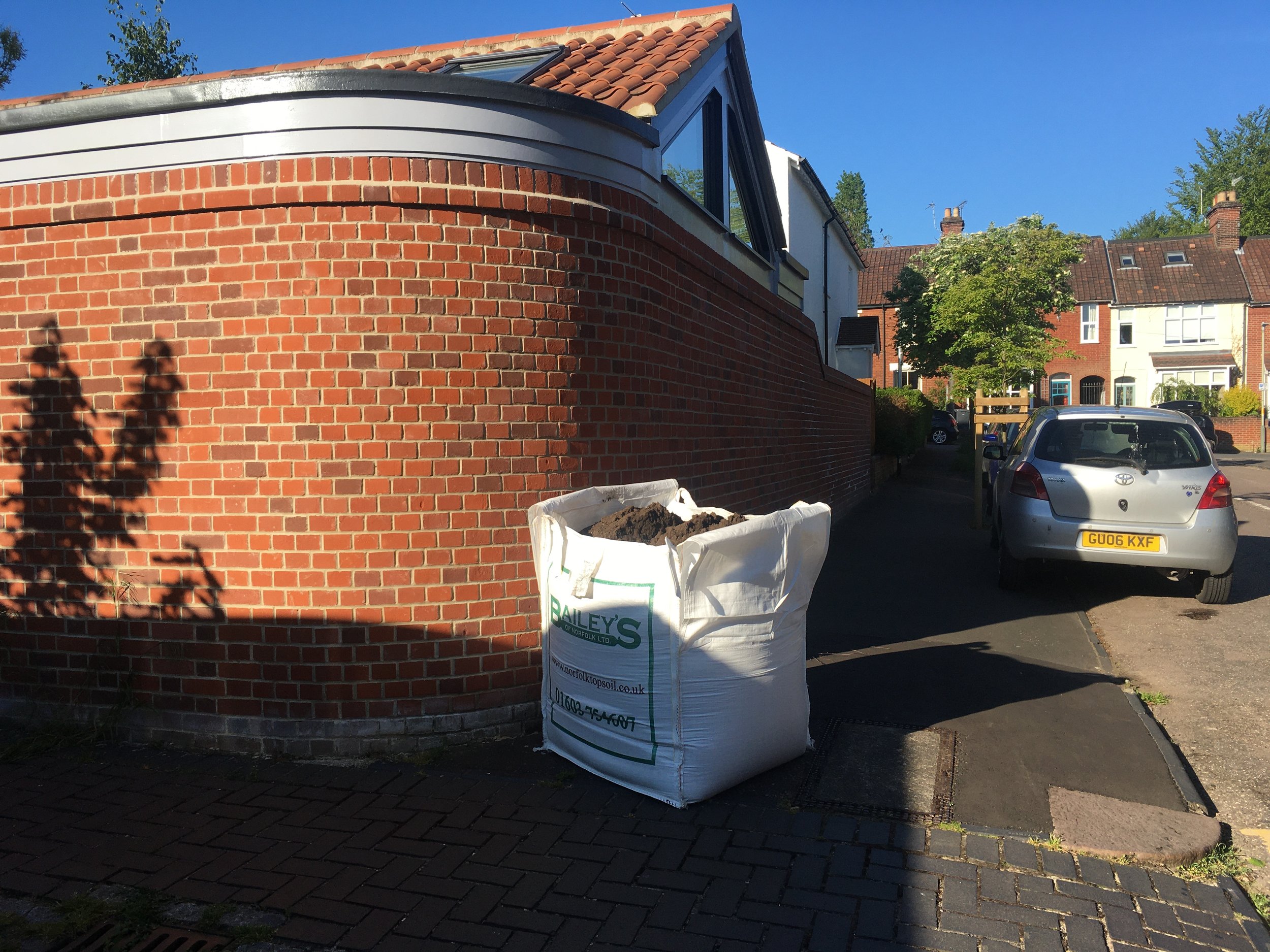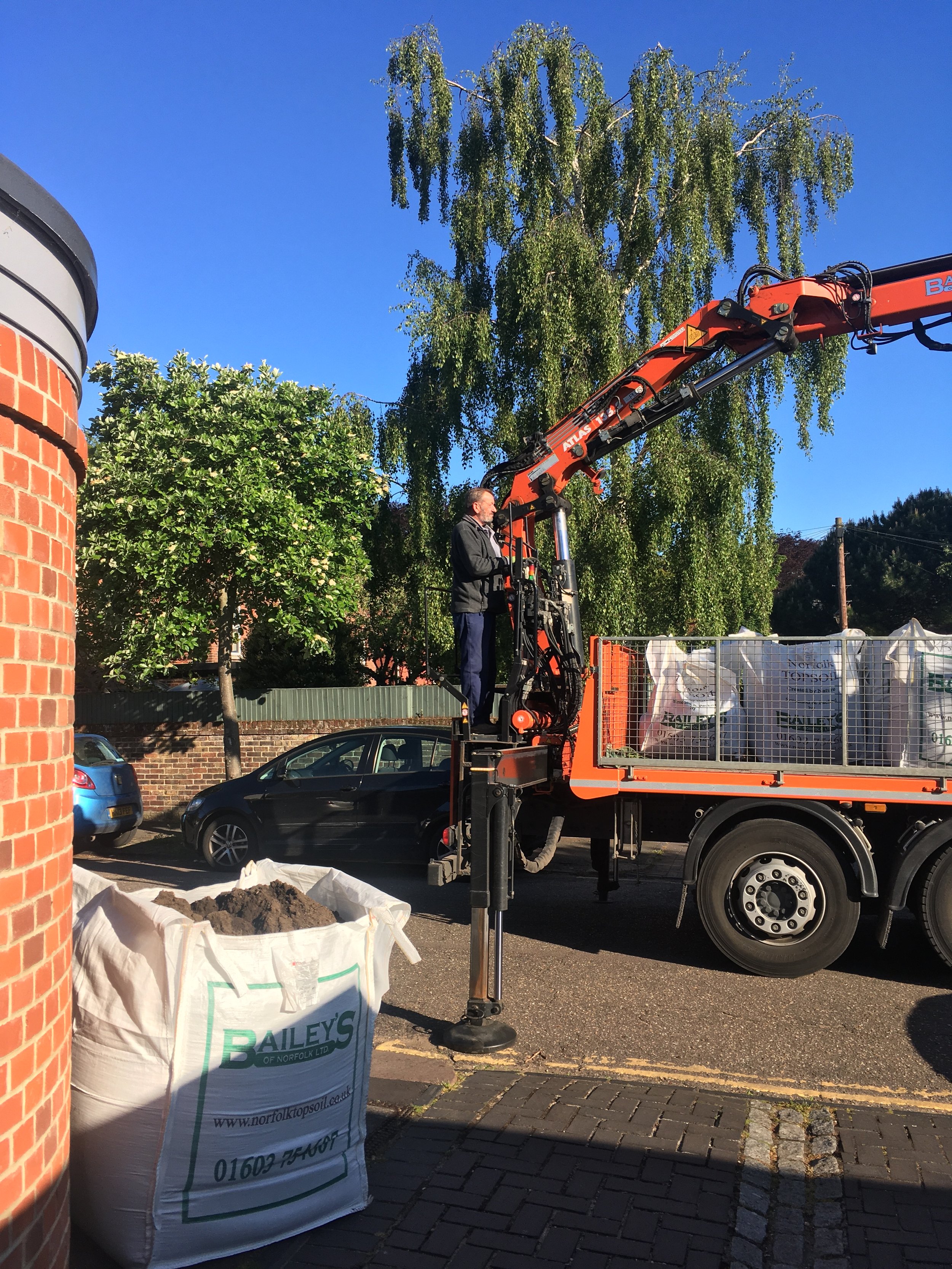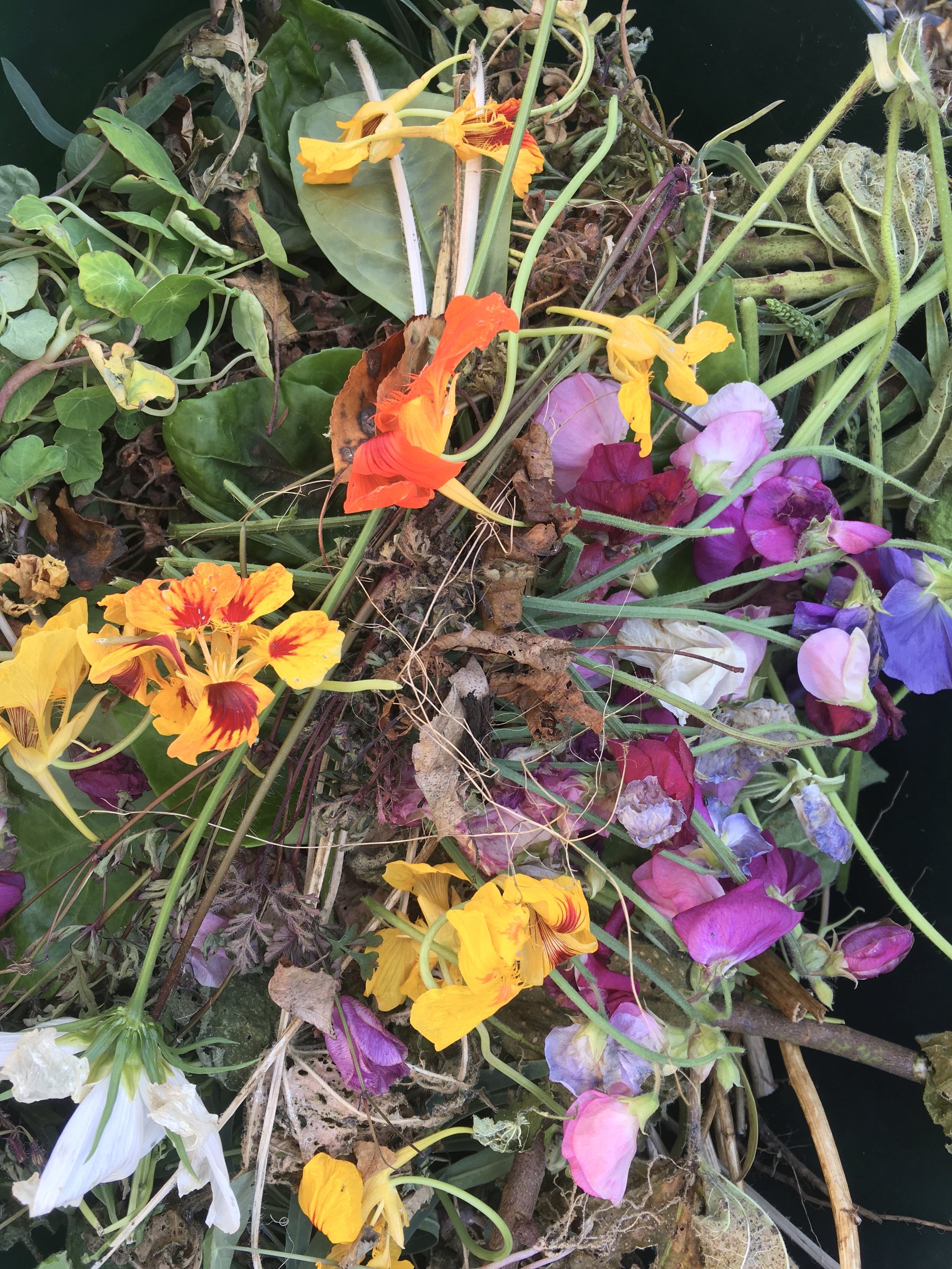Everything Is Compost
Since 2020 I’ve been recording my composting. I have two black plastic dalek bins: one at home, one at the allotment. Composting became an important activity for me during the lockdowns and pandemic because adding to it was an easy and repetitive thing to do. I also realised that a compost heap seemed to represent two things that were in abundance at that time at home: time and waste. As such, I started thinking about the compost heap as a record of daily life; at a time when we were hyper-focused on the rhythms and feeling of daily life.
The compost as a record contained leftover food, failed plants, brown bags from bread bought at the bakery nearby, toilet roll tubes and cardboard packaging from online orders while the shops were closed. I added old paper notes taken while performing the job I worked (writing part-time at the local paper). While on furlough, I started adding old drafts of my own writing (after transcribing it). In Natalie Goldberg’s book Writing Down The Bones, she describes writing as coming from “the garbage heap of my body.” Choreographer Siobhan Davies talks about her old work similarly: “This is a practice of not being embarrassed at looking back on work… if I look at my work as compost it can become nutritional”. I carried compost in my head and layered my own ideas on top of others’. In this way composting started to seem like a compelling type of work encompassing anything (and everything): life, creative practice, time.
I didn’t really like the paid work I was doing at that time, I much preferred the idea of ‘making compost’ as a way of living. i.e., accumulating experience, relationships, knowledge, memories, feelings (the good and the shameful, the ‘productive’ and the ‘unproductive’) and seeing what sort of concentrated pile all these things put together might all turn into. This helped me to better understand how I might better approach my own creative practice, living and my relationship with paid work; though I’m resigned to the fact that understanding the latter in particular is a life’s work. In 2023, I turned the findings into an exhibition at my house. The idea was the ‘show my workings’ in a non-pressurised way. I Blu-Taced stuff to the walls, installed a compost bin in my study and set up an audio station at my desk of written works-in-progress. I invited friends over, my husband cooked moussaka, my friend took photographs, I felt at various points like my work was stupid, and at others I reminded myself of the purpose of this thing: to share the work and not pressure myself. A kid bought a pink pogo stick and bounced up and down outside the front door, a baby thought about taking her first steps. I invited two people I’ve never met before. One of them gave me a bag of lemon verbena tea.
Like compost, this is an ongoing project which will never finish. Even after I die. It will become something else. Where else can it go?
Below are photographs of my heap at different times 2020-23, as well as the massive heaps I photographed at Great Dixter in East Sussex. I love the way the self-seeding squashes were growing across the surface, appearing as they liked.
I’ve created a set of five postcards, combining my compost iPhone photos with dream job specifications that I created from found text in magazines, newspapers and junk mail. I’ll planning to sell these – please email me if you think I simply must have these to give me a kick up the backside. Here’s one below:
